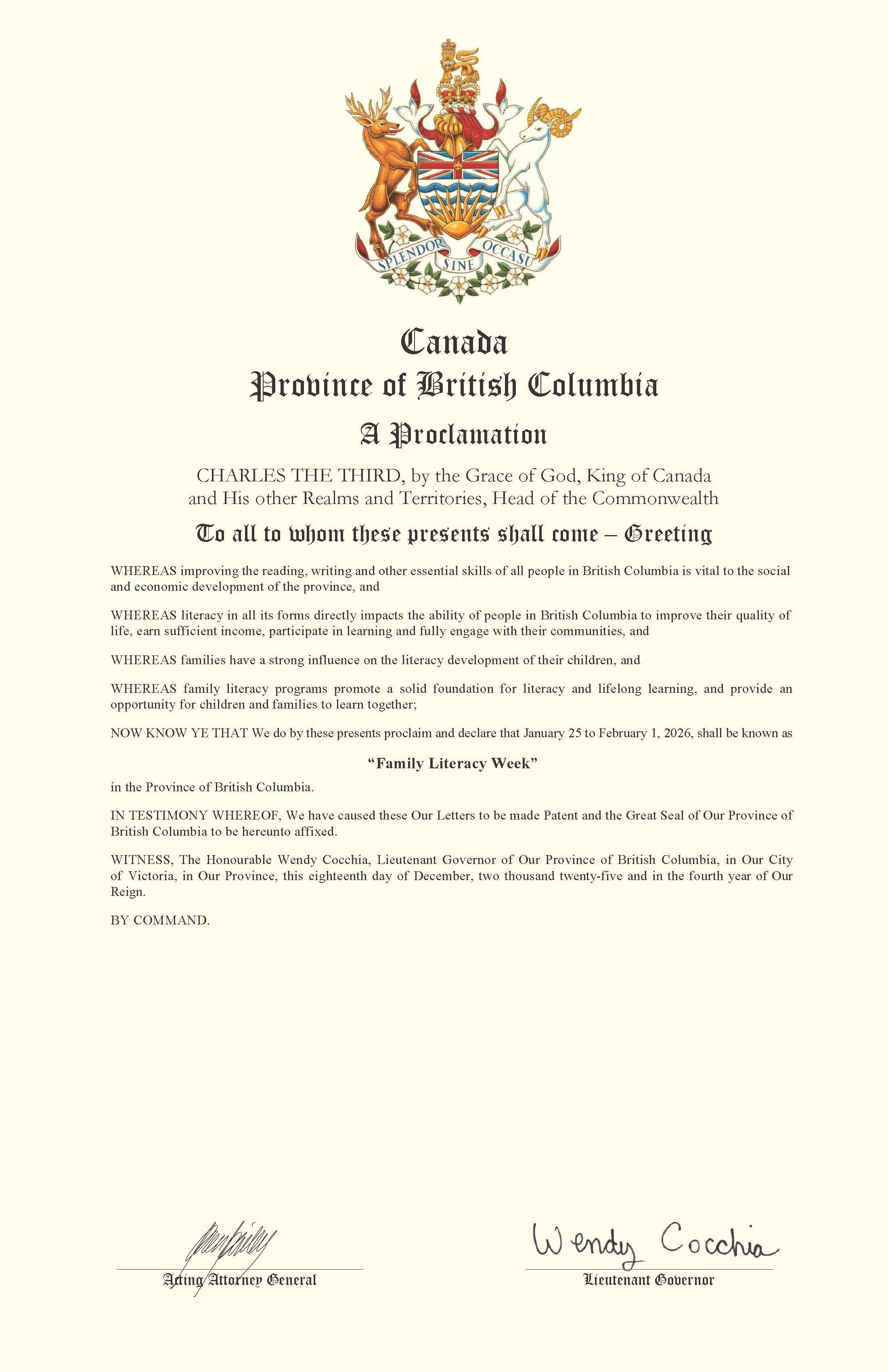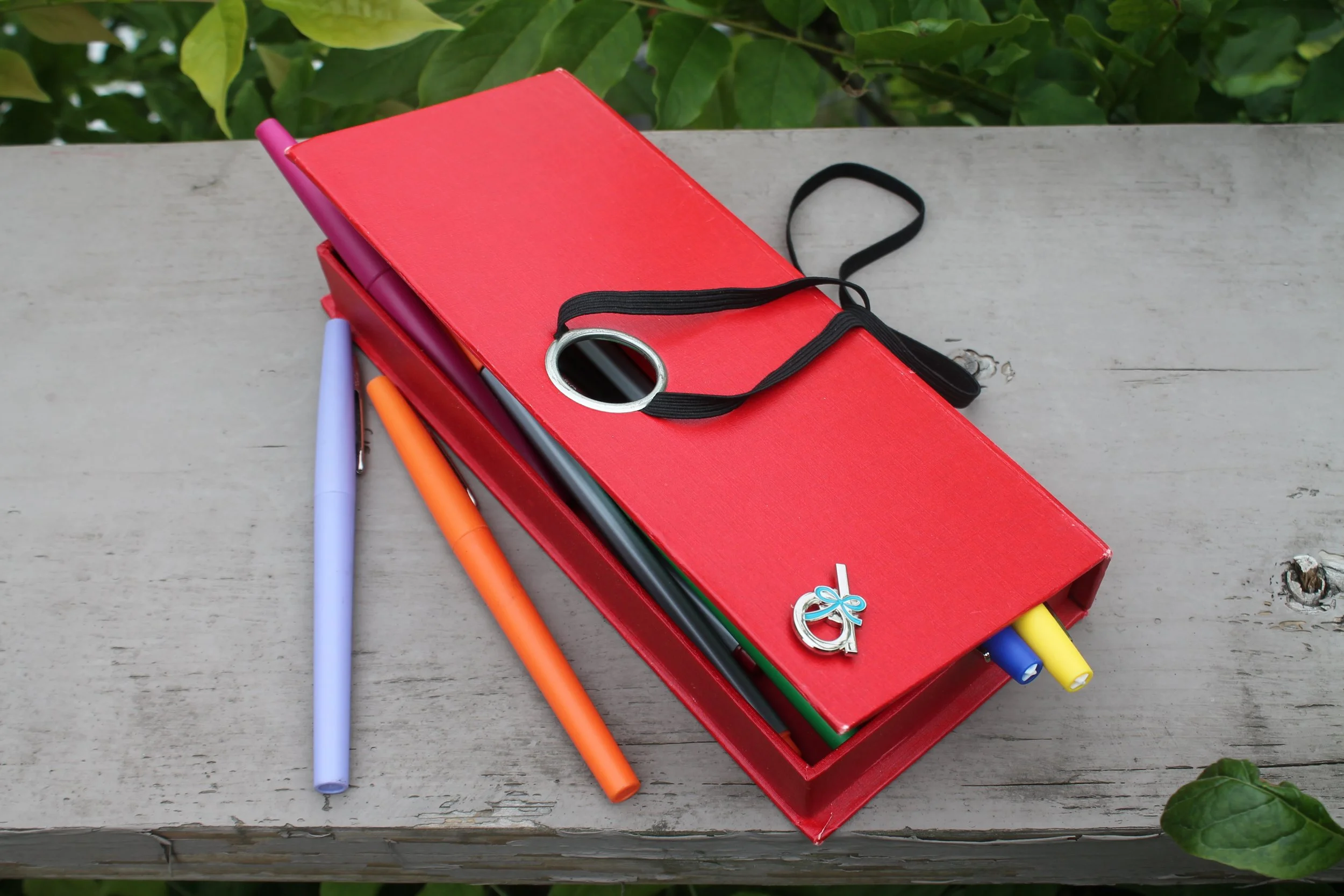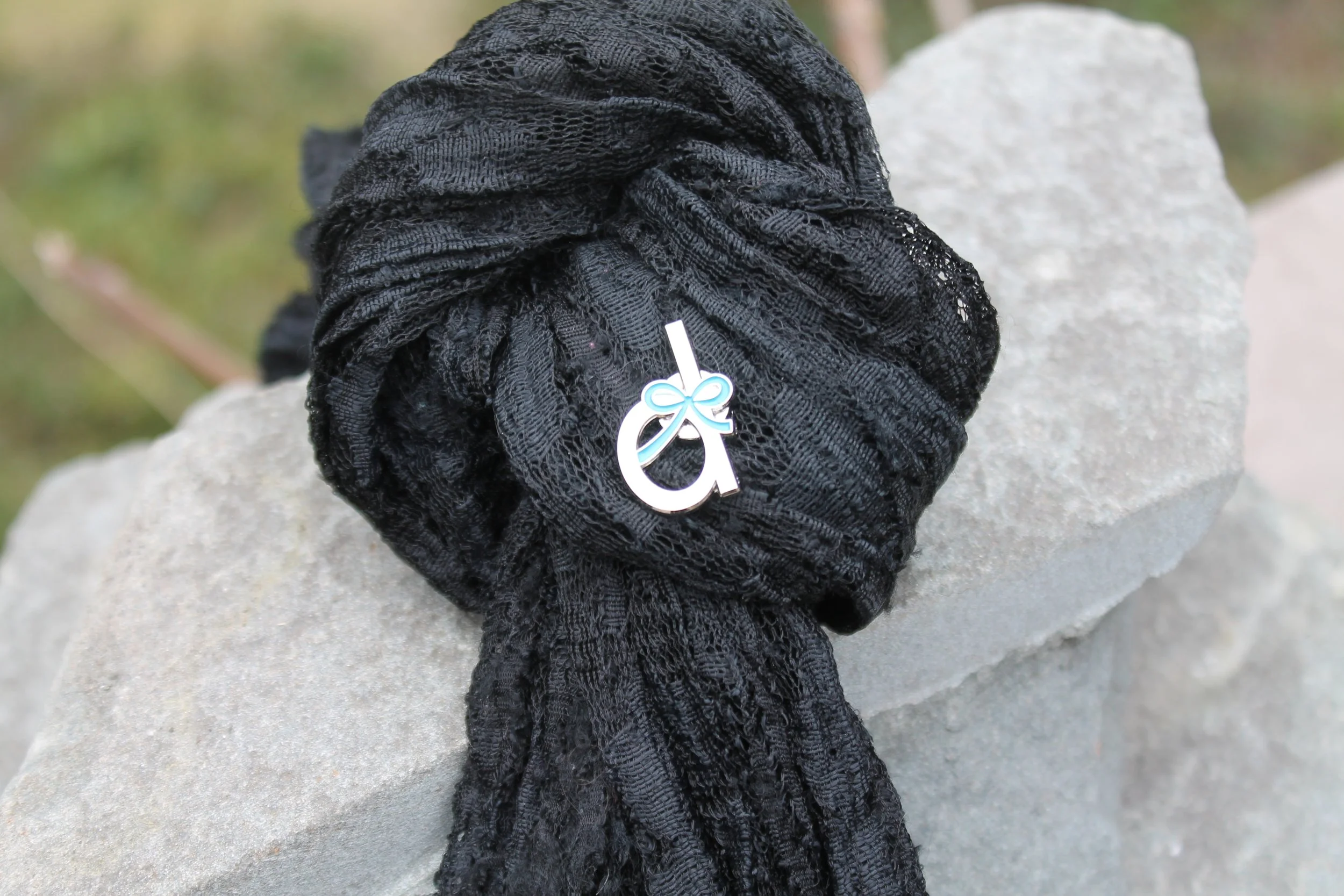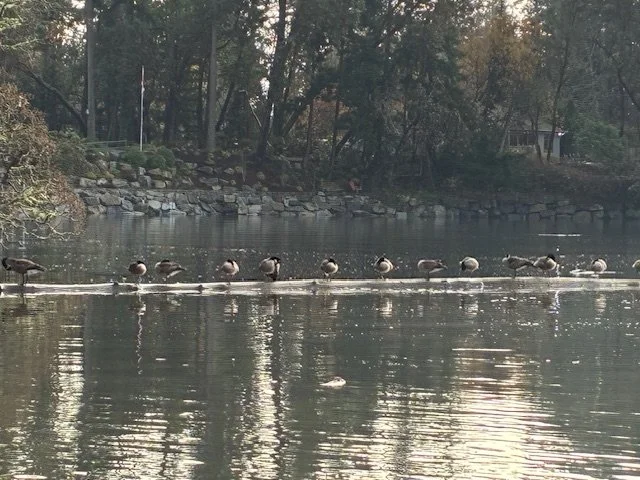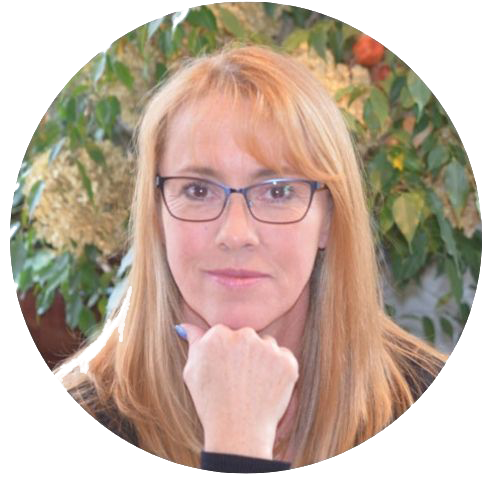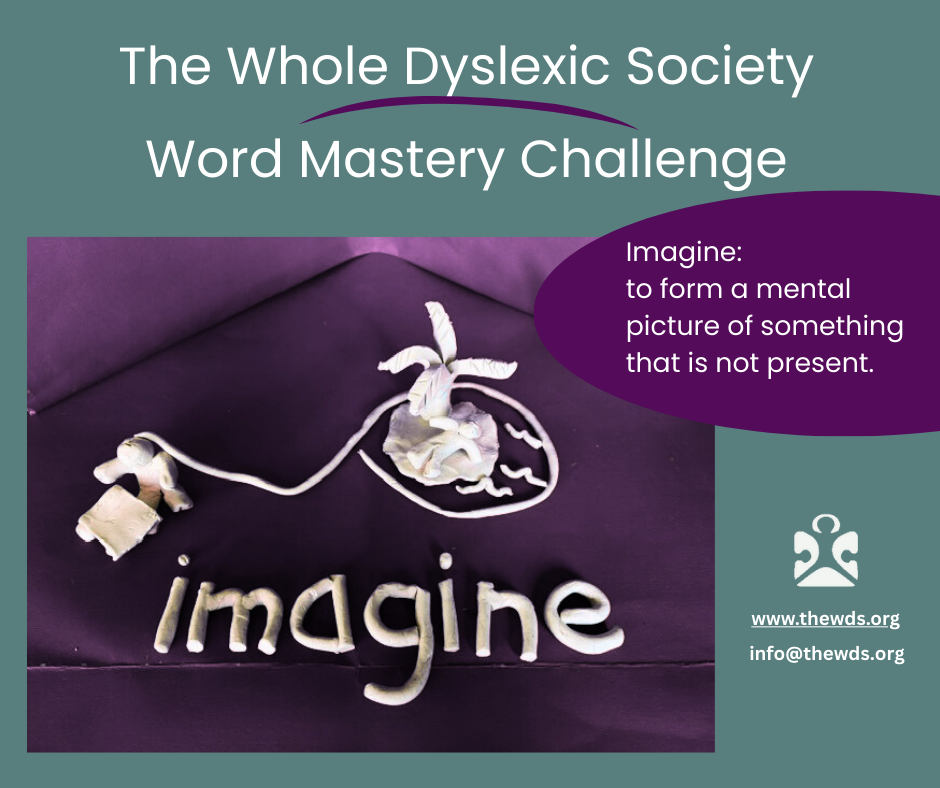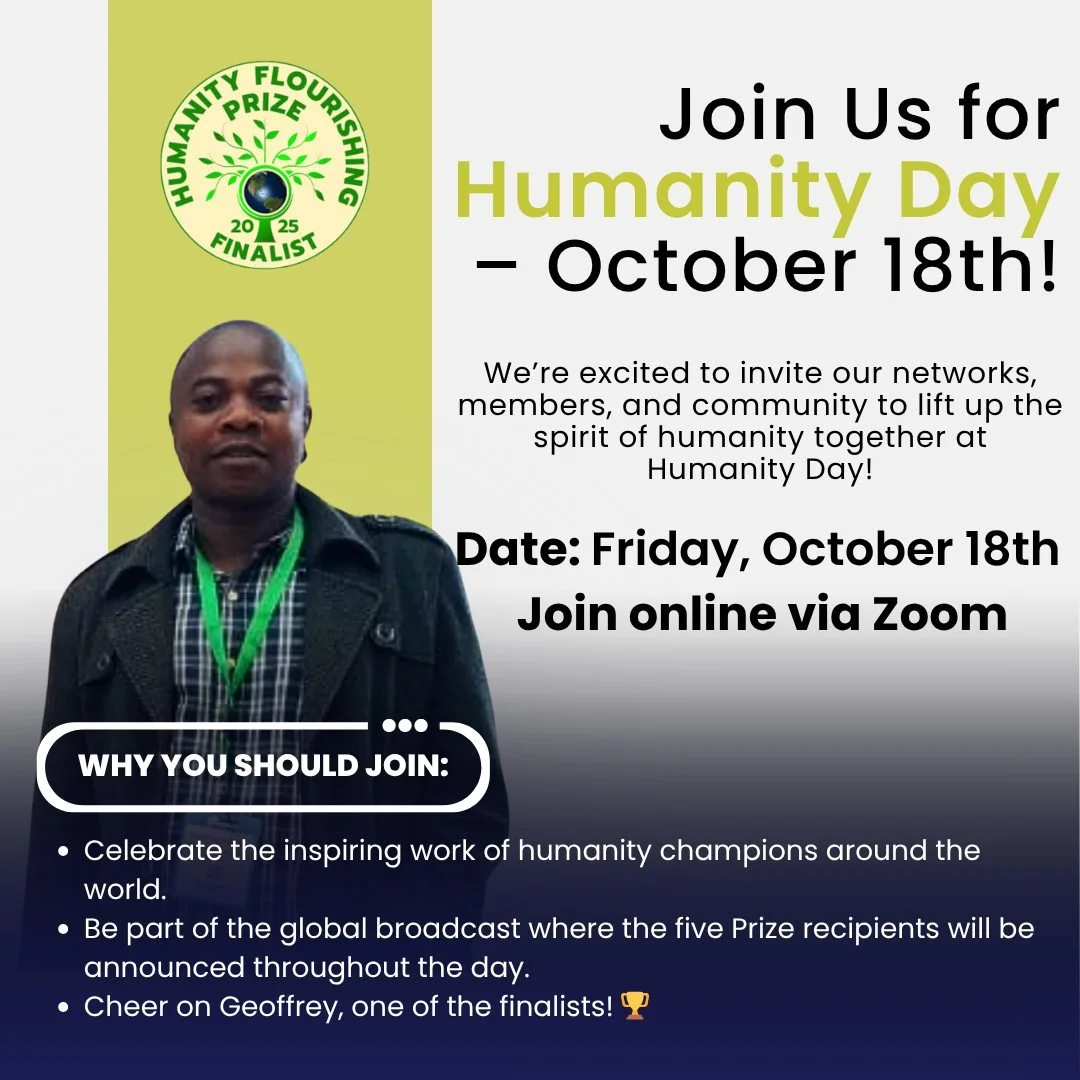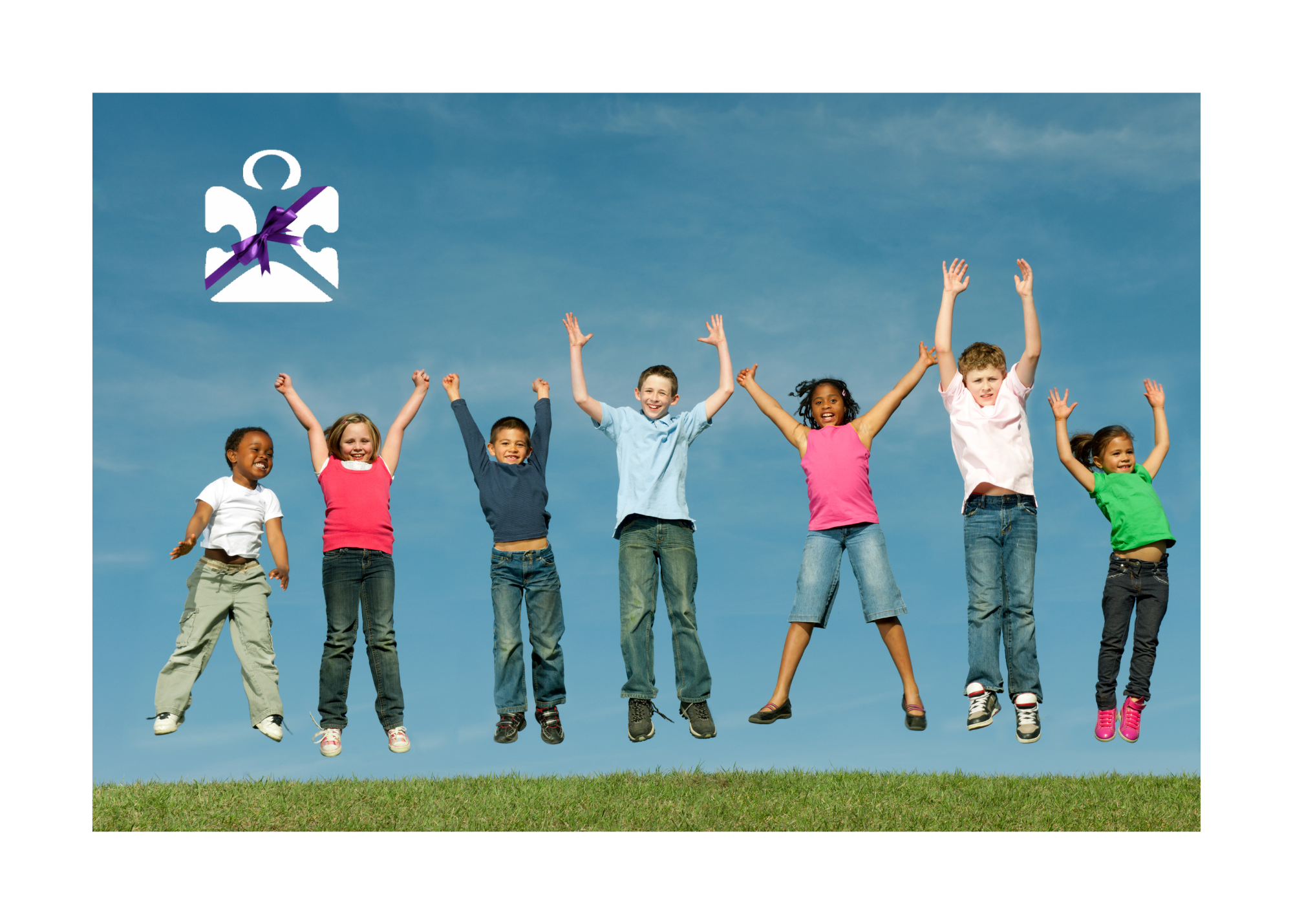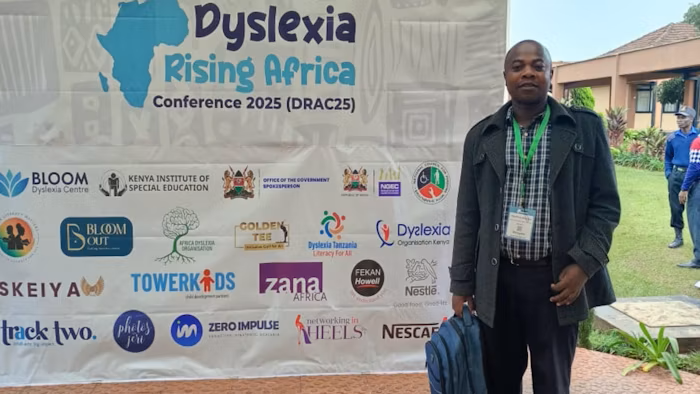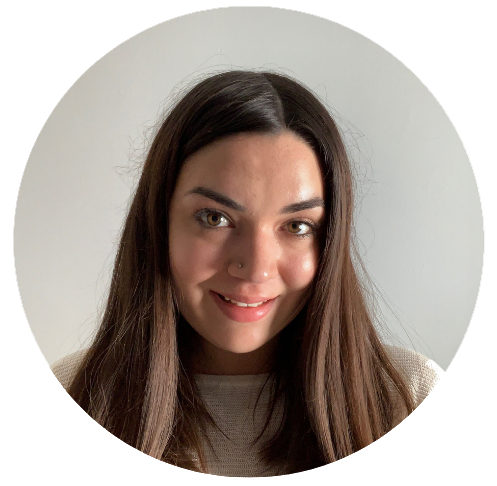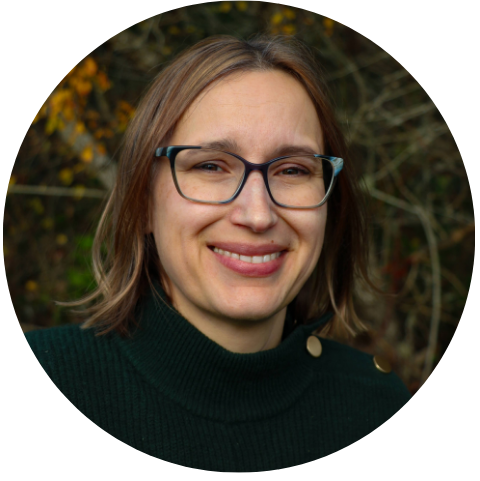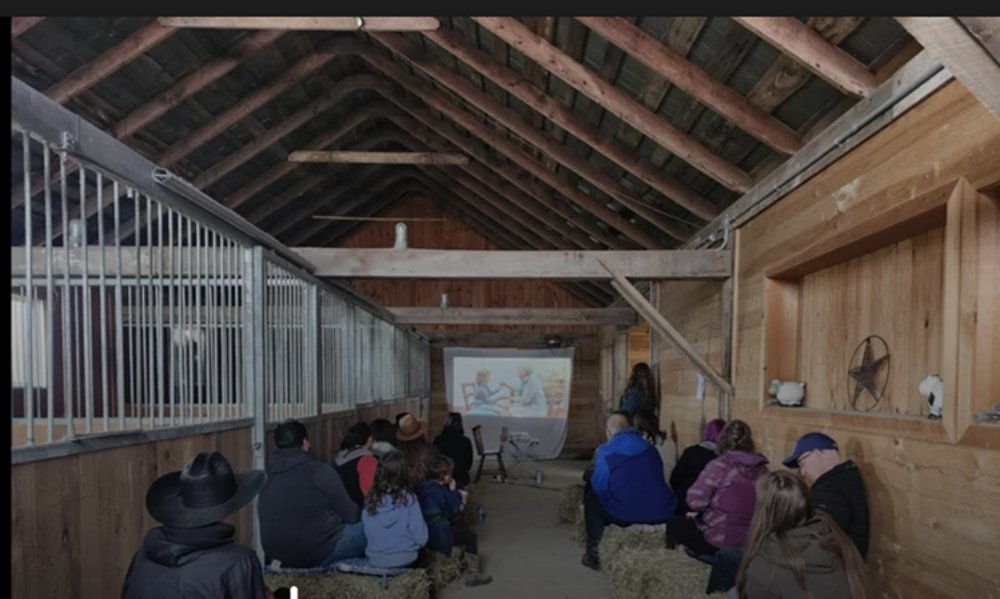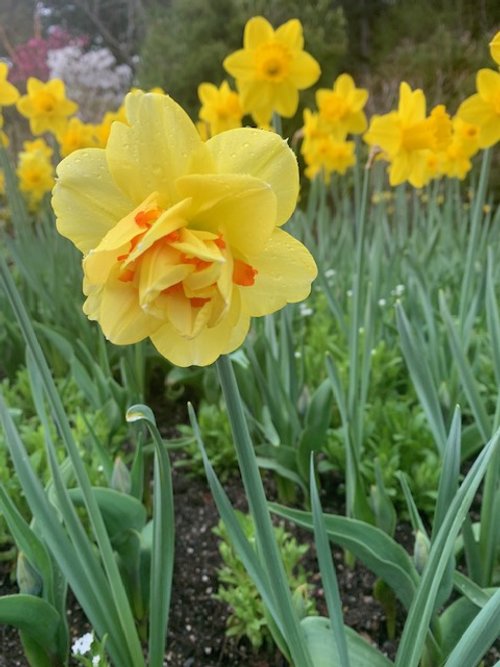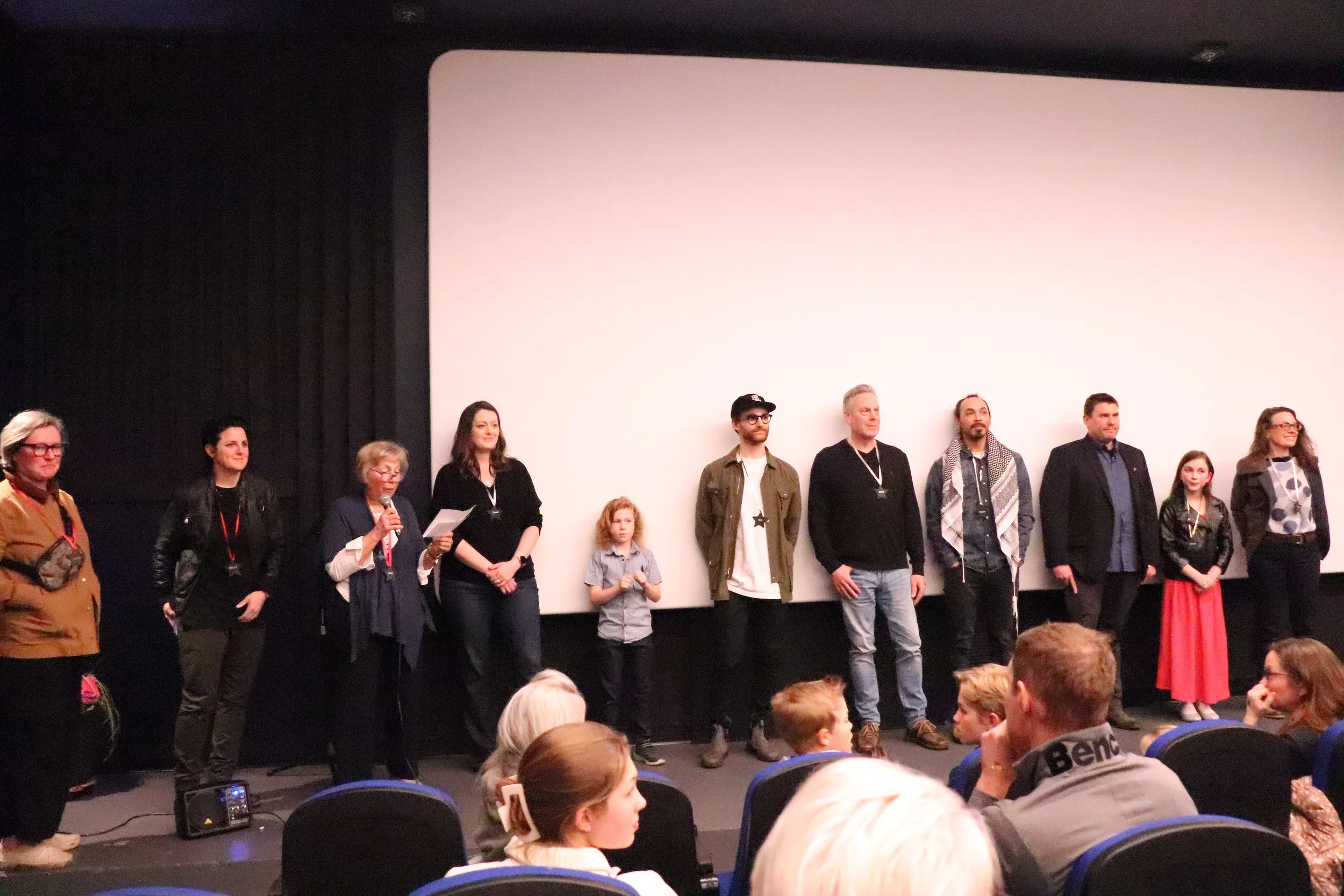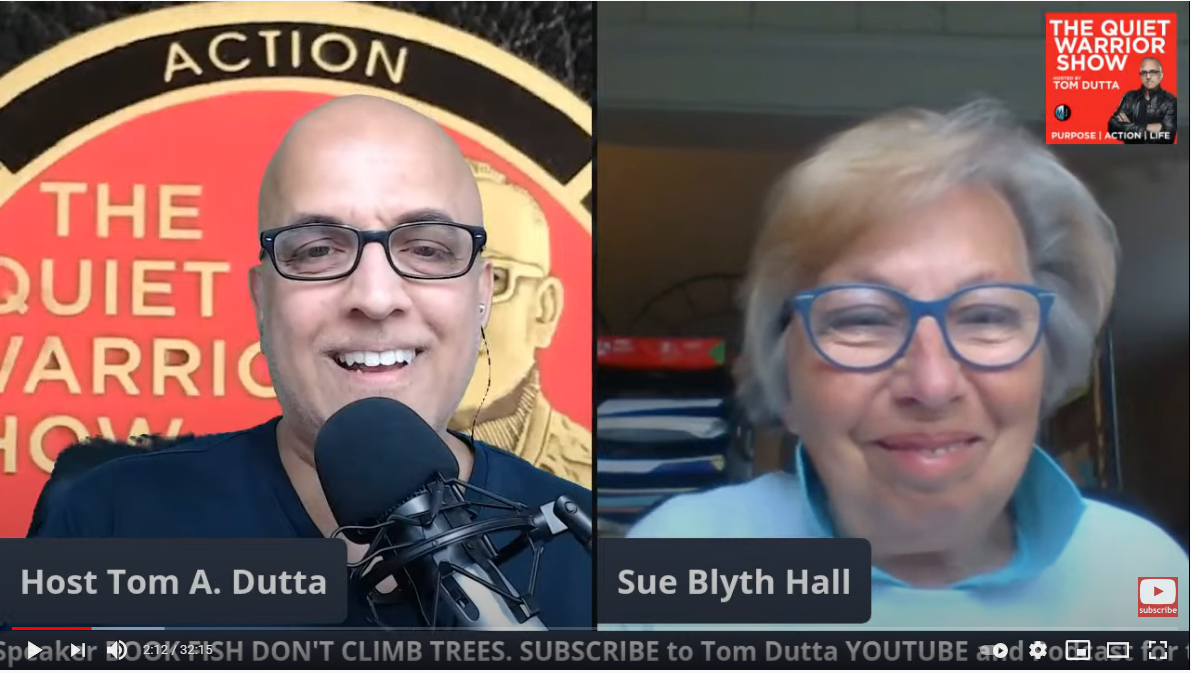
Newsletter January 2026
Dear Friends,
Happy 2026 to you all… whether you have goals, or resolutions, or look forward to whatever arises, we all hope it evolves beyond your expectations!
Happy 2026 to you all… whether you have goals, or resolutions, or look forward to whatever arises, we all hope it evolves beyond your expectations!
We are off to a great start… from January 24 to January 31 we are contributing to Family Literacy Week – as we host daily free online screenings of our documentary, WHO KNEW Dyslexia is a Way of Thinking. This is your chance for a preview, before it goes on general release… do join us, create a viewing party of you wish, popcorn and Kleenex recommended…! You can read more and Register HERE.
WHO KNEW continues to receive international awards!!! Kelly Conlin won this laurel award from the Indianapolis Film Festival for the best female Director! WHO KNEW also attained semi-finalist status at the Paris Women CineFest and the New York International Women Fest, which means we beat out all the other films in our category but did not make it to the official winner category. Not so shabby! We basically made it to the top but not the final one. We will hear from 6 more festivals in January…huge congratulations to Kelly!!!
Until our documentary can be on general release we are taking bookings for private screenings. Contact Sue Hall at info@thewds.org for details. The general release is expected in 2026 on TELUS TV, Channel 9, Stream+ all made possible with the support of TELUS STORYHIVE Editions and supporters like you! https://www.thewds.org/documentary-who-knew
Kakamega Update: Two New Zealand Facilitators, Claire Ashmore and Rachel Barwell introduced Geoffrey Ashiono to Davis methods.
Geoffrey is a primary teacher in Kakamega, Kenya and the full story is HERE. His success has grown in leaps and bounds, to such an extent that he intends to open a school in 2026.
He just needed the first year’s rent to make this happen. He asked for donations of one month’s rent - $160 CAN. We at the WDS donated one month on your behalf, and he exceeded his goal… the school will open… we will continue to enjoy and share his updates.
Can Loop Earplugs Help Neurodistinct and Autistic People with Sound Sensitivity? by Laura O’Neill, Administrator, The WDS
I recently experimented with music festival earplugs to reduce noise in a party setting over the holidays. I had heard they work great for music festivals. There are a few products on the market including Loop Earplugs with variations depending on the setting.
I never considered them in the past because I figured to work, they must have some kind of electronic noise cancelling technology, and I didn’t want a wireless device in my already sensitive ears. I was so wrong!
FOOD FOR THOUGHT
ADHD Isn’t Just a Deficit: New Study Reveals Powerful Psychological Strengths
If you want something done, give it to a busy person 😊
Technology in schools
We gave students laptops and we took away their brains.
Very supportive of Davis as it aids individuals taking responsibility for their own learning.
So interesting.. every generation has out performed itself until technology came along and Gen Z and Gen A are underperforming each other!
Calendar:
January 15 – your Board holds its first meeting of the year… agenda items welcome!
January 24-31 – Family Literacy Week - free daily screenings of WHO KNEW Dyslexia is a Way of Thinking - RSVP HERE
January 27 – Lindsay Hodge, a Davis Facilitator, Washington State, is hosting a screening of WHO KNEW to fellow professionals in her office building. This is exactly what we were hoping for… spreading our information widely!
February 7 and 21 – Commencement of the Alberta Aboriginal Head Start Society’s NeuroInclusivity for Early Years course.
February 12 – Sue is speaking at the BC Aboriginal Child Care Society Conference at the Westin Bayshore Hotel, Vancouver.
March 5/6 – NeuroInclusivity for Early Years core in-person workshop in Edmonton – Davis Learning Strategies for Early Years.
April 23 – South Vancouver Island Child Care online presentation – Julie and Sue
Sponsorship:
We do have a request… we are extremely grateful to have our program sponsorship financed for the next 10 years, thanks to one very generous client. That tells us that we are doing what we are meant to be doing.
We now need to focus on operational costs, which are not huge but essential. Our grant applications have not been successful this year, and we are very open to a corporate sponsor, or several philanthropic sponsors! If you know of anyone who has a personal interest in our work, to whom we could plead our cause, please do let us know… we would be beyond grateful.
So to you from a very grateful, relatively warm, relatively dry part of Canada, again we wish you all a fantastic 2026.
Please keep in touch, we want to know what you need !
Sue, Laura, Julie, Maureen, Sharon, Paddy, Gisa, Del and Tristan.
info@thewds.org
Newsletter December 2025
Dear Friends,
Welcome to December and the Christmas holidays … hoping they hold everything you wish them to hold for you.
Dear Friends,
Welcome to December and the Christmas holidays … hoping they hold everything you wish them to hold for you.
Sue feels the need to point out that any content that originates from the WDS, whether in a Newsletter, or on the website, or social media is exactly that, original. We feel we have a ‘nose’ for AI text and aim to avoid it, and a friend just pointed out that AI can deliver fake testimonials. ALL of ours are REAL from real people, with their approval !!! We will be adding this to our website.
WHO KNEW Dyslexia is a Way of Thinking
Just have a look at our trailer … Kelly Conlin, our Director, has added the laurel icon to it as we were accepted to the Los Angeles Women in Film Festival. Looks SOO good! In December we expect to hear from more festivals, fingers crossed!
Kelly Conlin is continuing to pursue the Film Festivals.
Private screenings are coming in January:
******Family Literacy Week, January 24 to February 1st, 2026 - we will host daily private screenings. We hope you can join us! RSVP HERE.******
A screening at The Little Prince Cinema, Stratford, ON, January 2026 — it’s the world’s smallest theatre in town, inviting about a dozen local leaders to each showing — people from the city, schools, business community, and local media — just to spark more awareness that our way of thinking really is a gift, not a disability.
Until our documentary can be on general release we are taking bookings for private screenings. Contact Sue Hall at info@thewds.org for details. The general release is expected in 2026 on TELUS TV, Channel 9, Stream+ all made possible with the support of TELUS STORYHIVE Editions and supporters like you! https://www.thewds.org/documentary-who-knew
PREVENTION: NeuroInclusivity for Early Years 2026
Last year, you may remember BC Campus funded the creation of a Professional Development pilot for Early Childhood Educators, ECEs.
The WDS created before and after modules around a modified Davis Learning Strategies for K-3 teachers… which was named DLS for Early Years.
We called the whole package NeuroInclusivity for Early Years. It was very successful.
Following Sue’s October Keynote in Edmonton, The Alberta Aboriginal Head Start Association asked us if we could repeat NeuroInclusivity for Early Years throughout their 21 centres in Alberta. Davis International gave us the go-ahead to use DLS for Early Years and we are now in the process of ‘tweaking’ the original program. We decided to pilot a more accessible format. The BC Campus funding meant that the whole course was free to ECEs and this is not always going to be the case going forward. We intend to use a ‘hybrid’ format of recorded and live presentations which can go forward in the future with Davis International and be more affordable for ECEs.
Our BC Campus Connection continues…
Thanks to Julie Brewer we made the original connection with BC Campus and this year Sue was invited to provide an Accessibility Bites 30 minute presentation on The Gift of Dyslexia. 300 educators across Canada registered and 80 of whom were on the live Zoom call. It was interesting to gear the information to adults and what is needed in school and the workplace. Sue watched two previous presentations on ADHD and Learning Disabilities (a term she never uses) and her presentation was very different.. not too many words, bullet points, images, colours. It was different and she is looking forward to the feedback!
SHARON ROBERT’S CORNER: (just think snow and ski-ing and sledding… Sue)
Have you ever wondered whether your child plays enough? Furthermore, do they play enough outdoors?
Most pediatric specialists recommend a minimum of outdoor play to be one hour daily; 2 hours being the ideal. Active outdoor play has many proven health benefits: better sleep, improved mood, increased focus, healthy muscles and bones (vitamin D) fundamental strength and coordination development and relaxation.
There are some integral benefits of outdoor play to your child’s well-being. Typically, Canadian children get about 20 to 30 minutes of outdoor playtime during recess at school each day. This can vary based on the school, region, and specific policies in place. It has been suggested that walking to and from school could be considered as time spent outdoors, but in most heavily populated areas in Canada, children are bussed to school. So where can a child get this play time especially outdoors? It can be a struggle to find opportunities but just like other important things, you build it into your routine .
Here are some suggestions: A morning walk or a short stroll after dinner. If you can, walk to school or wait for the bus outside instead of in the car. If you are going somewhere, park further away and when weather is appropriate try to eat a meal outdoors. Even little chores such as fetching things out of the car, getting the empty garbage bins help to get some outdoor exposure. Finally, you could just make it a rule to get out and play for 10 minutes a day. Chances are the child will stay out longer, if anything is done consistently, no matter how small, it becomes a habit.
Read more at Sharon’s Corner here….
Sharon Roberts: https://dyslexia.ca/about/
Social Media News
This Giving Tuesday on December 2nd we highlighted our Gifted with Dyslexia Pins. It’s time for us all to show how proud we are of our way of thinking, our gift of altering perception, when we found out there was no universal symbol for dyslexia, we created one, a beautiful, positive one.
All proceeds from the sale of our ‘Gifted with Dyslexia’ magnetic pins go towards our initiatives. Read more about our mission HERE.
If you would like to buy a pin or read more about our pins please visit our page HERE. We would love for this symbol to be known across the world - help spread the message. Thank you!
Visit us on Facebook, Instagram and LinkedIn. See you there!
FOOD FOR THOUGHT
When You Can’t Recall a Word
This is so reassuring, I’ve always said there’s nothing wrong with my brain, its just full.
I like that it mentions pairing meaning with sound… and it ties in with our particular need for picture meaning, especially concepts and proper nouns. Feeling so much better 😊.
https://www.youtube.com/watch?v=wtovy-1-QUM
So True !!!
The late Sir Ken Robinson – such a wise man – very honoured to have met him. I gave him a copy of The Gift of Dyslexia !
https://youtube.com/shorts/x0uI2_hH71c?si=hSzZFBWYCfF-n7u4
How reading changes the way your brain works - BBC World Service
Calendar:
December 4: Shelley Tice will attend 100 Women Who Care in Sidney, hoping to pitch for the WDS.
December 9: Screening of WHO KNEW Dyslexia is a Way of Thinking for the Alberta Aboriginal Head Start Association, followed by the Course Outline of NeuroInclusivity for Early Years.
December 11: Screening of WHO KNEW Dyslexia is a way of Thinking for Davis North America.
2026:
Proposed General Release of WHO KNEW via Telus STORYHIVE… tbc.
January 24 - Feb 1: Family Literacy Week! Join us in an invitation only online screening of WHO KNEW Dyslexia is a Way of Thinking. Each evening and an afternoon screening on the two Saturdays. RSVP HERE
January – Nadine’s Golden Ticket event at The Little Prince Cinema, Stratford, screening WHO KNEW
February 7 - AAHSA Theory
February 21- AAHSA History of Davis Learning Strategies
March 5/6 – AAHSA – 2 Day In Person Davis Learning Strategies for Early Years
April 23 – South Vancouver Island Child Care online presentation – Julie and Sue
As the WDS winds down for the holiday season, we wish you a fabulous, fun, restorative, joyful time and we look forward to a very exciting 2026!
Sue, Maureen, Julie, Tristan, Del, Sharon, Gisa, Laura, Paddy
info@thewds.org
Newsletter November 2025
Dear Friends,
Hibernation time is approaching … not my favourite… but unavoidable!
The temperature outside may be getting cooler, but our efforts are taking off!
Dear Friends,
Hibernation time is approaching … not my favourite… but unavoidable!
The temperature outside may be getting cooler, but our efforts are taking off!
WHO KNEW Dyslexia is a Way of Thinking
We could not be more grateful and honoured to know that Ronald D Davis and his wife Alice watched WHO KNEW recently.
None of our work would ever have been possible without them, and thankfully Ron felt our message was clear.
Kelly Conlin has more Film Festival news.
WHO KNEW is screening in Los Angeles at the:
11th LA Women in Film Festival
Friday, November 14th
The Other Space Theater - @ 7:30pm
WOMEN SHORTS PROGRAM 2 – DOCUMENTARIES
Just to see us featured on this Official Film Festival page with 20 other films is remarkable!
Please tell any friends/relatives you have in that area !
AND: WHO KNEW received Semi-Finalist status in the Best Female Director category at the Indianapolis Independent Film Festival.
Kelly has entered even more film festivals, including one in Paris !
ALSO: Following Tessa Halliwell’s private screening in Leicestershire, on November 13, she has been asked to a local school’s inclusion meeting with their Special Education Needs Department – she says “ The effect of that film is amazing🧡”. She has arranged two screenings of WHO KNEW for Davis UKIE Facilitators, Oct 30 and Nov 8.
ALSO: Nadine Schumont, who has had one private screening already, is entertaining this idea:
A screening at The Little Prince Cinema, Stratford, ON, January 2026 — it’s the world’s smallest theatre in town, inviting about a dozen local leaders to each showing — people from the city, schools, business community, and local media — just to spark more awareness that our way of thinking really is a gift, not a disability.
Until our documentary can be on general release we are taking bookings for private screenings. Contact Sue Hall at info@thewds.org for details. The general release is expected in 2026 on TELUS TV, Channel 9, Stream+ all made possible with the support of TELUS STORYHIVE Editions and supporters like you! https://www.thewds.org/documentary-who-knew
PREVENTION: DAVIS LEARNING STRATEGIES for EARLY YEARS
We continue to work towards yet another pilot in collaboration with the Alberta Aboriginal Headstart program for 3-5 year olds.
Sue and Julie were part of a Panel Discussion organised by Melanie Langman, who attended our first pilot ECE.
She is the Child Care Resource & Referral Consultant – West Shore for the Sooke Family Resource Society and we hope to be able to attract local interest.
OUTREACH
Emily Zwart secured an article in TEACH Magazine aimed at educators and here is the link:
https://teachmag.com/transforming-how-we-see-and-support-dyslexic-learners/
SHARON ROBERT’S CORNER: The Pygmalion Effect
The phrase "expect more, you'll get more" suggests that having high expectations for yourself will result in more motivation to achieve better results. Is this true if someone else expects more from you ? The answer is yes, according to the Pygmalion Effect theory.
The Pygmalion effect is a psychological phenomenon when higher expectations from teachers, managers, or others can lead to improved performance in those being observed. In fact, there was a study done by psychologists Robert Rosenthal and Lenore Jacobson. They conducted a famous experiment where teachers were told that certain students (chosen at random) were expected to be "intellectual bloomers" based on an imaginary test. In reality, these students were randomly selected. At the end of the year, those students showed significant academic improvement compared to their peers, demonstrating how teachers' higher expectations positively influenced student performance.
This theory works in a loop and is based upon the principle that:
1: Other people’s beliefs about us influence their actions toward us (positive or negative).
2: These actions towards us influence and reinforce our beliefs about ourselves.
3: Our beliefs about ourselves influence our actions toward others.
Reflection: Does the learning disability label affect the perception the teacher has toward your child positively or negatively?
Read more at Sharon’s Corner here….
Sharon Roberts: https://dyslexia.ca/about/
Calendar:
November 14: International Premiere of WHO KNEW Dyslexia is a Way of Thinking at the Los Angeles Film Festival, USA.
November 27: Sue presenting webinar for BC Campus’ Accessibility Bites – aiding adult dyslexics.
December 4: Shelley Tice will attend 100 Women Who Care in Sidney, hoping to pitch for the WDS.
2026: Proposed General Release of WHO KNEW via Telus STORYHIVE… tbc.
January 25 - Feb 1: Family Literacy Week! Join us in an invitation only online screening of WHO KNEW Dyslexia is a Way of Thinking. More details to come!
January – Nadine’s Golden Ticket event at The Little Prince Cinema, Stratford, screening WHO KNEW
If you would like to help us in our endeavours, please do get in touch, we are expanding with a team of volunteers and that is a challenge.
We all have busy lives, we just want to make the lives of one third of the population a little easier… so whether it is your time, or a donation,
or introducing us to a possible sponsor/celebrity… we welcome you with open arms.
Thank you from your Board…
Sue, Maureen, Julie, Tristan, Del, Sharon, Gisa, Laura, Paddy
info@thewds.org
Newsletter October 2025
October is Dyslexia Awareness Month and the WDS is certainly playing its part.
Happy Canadian Thanksgiving!
October is Dyslexia Awareness Month and the WDS is certainly playing its part.
On Wednesday Oct 8 Sue presented her first Keynote session at the Edmonton Family Literacy Conference and they also screened our WHO KNEW documentary. Both were warmly received and we now have some beautiful connections, interested in both the correction and the prevention strategies.
Our film will have its world premiere this November 13th-16th in Los Angeles at the 11th LA Women in Film Festival. Kelly Conlin, our Director, is eagerly awaiting news that WHO KNEW has been accepted to any of the other international and local film festivals. Until our documentary can be on general release we are taking bookings for private screenings. Contact Sue Hall at info@thewds.org for details. The general release is expected in 2026 on TELUS TV, Channel 9, Stream+ all made possible with the support of TELUS STORYHIVE Editions and supporters like you! https://www.thewds.org/documentary-who-knew
So how’s that for a great start to October?
Grateful
We have a sincere thank you to Nadine Schumont who is retiring from our Board, but not our world. We are more than grateful for the time and energy she has donated to us and we have always benefited from her infectious enthusiasm. We will all miss her and admire all the community projects she is heading into.
Sharon Roberts has been penning wonderful well-researched articles for our Newsletter which we have used for our Come to the Dyslexic Table discussions, and in turn Sue then edits for our podcasts.
As of November, we are taking a break from CTTDT for a while and we look forward to Sharon having her own ‘corner’ in our Newsletters.
More WHO KNEW News
So far our private screenings have been in Sidney BC, Edmonton, Ontario and Leicestershire in England.
WHO KNEW was screened at the Family Literacy Conference after Sue’s Keynote on Oct 8.
Sharon Roberts will host a screening in Hamilton, Ontario, Nov 1 aided by our PR volunteer Emily Zwart.
We have had requests from Italy, Spain, Australia, two Facilitators in the UK and two in Ontario.
We are very hopeful that Ron and Alice Davis will view it this month… it wouldn’t be its own power house without them!
From Tessa Halliwell (our UK host/distributor):
“I have been booked to show the film again on Nov 13 to parents of dyslexics whose teacher attended previously.
I met with the teacher and her Head on Monday who admitted phonics doesn’t work but also admitted getting out of that box will be very difficult.
I was asked to attend their next inclusion meeting with their SEND academy lead - I’m awaiting a date.
The effect of that film is amazing🧡”
We still have to hear from Yukon, Victoria, Whistler, Sedona, Edinburgh, Indianapolis, Santa Barbara, Pasadena and Seattle Film Festivals …. we had ‘no’ from Vancouver, Toronto and New York. This may delay our general release which is due for December 2, 2025.
Visit our WHO KNEW landing page for up-to-date happenings and information about private screenings.
To register for the private screening in Hamilton, Nov 1st, visit the registration page here: https://events.hpl.ca/event/14800442
Social Media News
We have started two campaigns.
The Word Mastery Challenge. Word Mastery is an integral part of a Davis program and we hope this will become an interactive project.
Our first model was for the meaning of ‘imagine’… and we look forward to receiving words that our community challenges us to model a meaning. Watch for our posts on Instagram and Facebook the 3rd week of each month. Or visit our Facebook page - pinned posts - for the latest.
Throughout October we will be introducing the WDS TEAM that makes the dream work! ✨
We’re excited to introduce you to the creative, talented, and dedicated board members & volunteers behind The Whole Dyslexic Society. Over the next few weeks you’ll get to know each of us a little better. Visit us on Facebook, Instagram and LinkedIn each week to meet our team!
Kakamega Project – Laura played a major role in the creation of Geoffrey’s application for the Humanity Flourishing Prize and he is now one of the finalists. We are excited to share this upcoming Humanity Day Global Broadcast Event on October 18th when the five Prize recipients will be revealed throughout the broadcast. Join us as we celebrate our very own Humanity Champion Finalist Geoffrey Ashiono.
Calendar:
October 23: Sue and Julie will be at a Panel Discussion at the Child Care Resource & Referral Consultant – West Shore Sooke Family Resource Society
November 1: WHO KNEW Dyslexia is a Way of Thinking premieres in Hamilton, Ontario hosted by Sharon Roberts and Emily Zwart.
November 13-16: International Premiere of WHO KNEW Dyslexia is a Way of Thinking at the Los Angeles Film Festival, USA.
November 27: Sue presenting webinar for BC Campus’ Accessibility Bites – aiding adult dyslexics.
2026: Proposed General Release of WHO KNEW via Telus STORYHIVE… tbc.
Happy Fall!
~Your Board, Sue, Maureen, Julie, Tristan, Del, Sharon, Gisa, Laura, Paddy
info@thewds.org
Newsletter September 2025
Welcome back to the world, and hoping you all had a wonderful summer, with lots of fun and rest.
Welcome back to the world, and hoping you all had a wonderful summer, with lots of fun and rest.
We have the most incredible news. An exceptionally generous gentleman, who took a program with Kim Willson-Rymer in Ontario, called to pledge $9,000 a year to our program sponsorship fund for at least 10 years, starting April 2026. We can’t thank him sufficiently for enabling more students to take our programs and to Kim, as she pointed him in our direction and he obviously benefitted enormously from his program!
WHO KNEW had its first international Premiere! Davis Facilitator, Tessa Halliwell had a wonderful (and very stylish) evening at an amazing location and attracted some very interested teachers. She says:
“Each ripple starts with one drop. The drop could be big, or it could be small but the ripple spreads and causes change. This is what happened in a tiny village in Leicestershire in the UK. The effect of watching WHO KNEW -Dyslexia is a Way of Thinking completely shifted the understanding of those in the audience; moved some to tears, inspired others. The change is that they all now know dyslexia is a way of thinking and all know that dyslexics are learning able.”
It is definitely exciting to see where all of this leads! Sadly we didn’t get accepted for TIFF, New York, Whistler or Vancouver Film Festivals…still some more to go!
Kakamega Project News
We’re excited to share that Geoffrey recently attended Africa’s first Dyslexia Conference in Nairobi, where he built meaningful connections. Many facilitators there had never heard of Davis Methods, his testimonials and sharing drew admiration and sparked real interest.
We’re also proud to share that The Whole Dyslexic Society has nominated Geoffrey for the 2025 Humanity Flourishing Prize, recognizing his outstanding work in advancing dyslexia education in Kenya. We wish him every success!
At the tutoring centers, real progress is shining through as students begin to thrive with the right tools and support. But to keep this momentum going, we urgently need funding to cover monthly internet costs and provide more tablets for learners.
You can follow the inspiring journey through our blog series at thekakamegaproject.raisely.com
With your support, we can continue building brighter futures for children in Kakamega and beyond. We gratefully accept your support at thekakamegaproject.raisely.com.
Our Podcasts: When editing one of our recent podcasts, Sue was struck by a story of a school inclusion officer telling a mother to “cease and desist” from using Davis Method tools and strategies, claiming the school’s approach was the only scientifically proven option. The mother bravely pushed back, reminding them they were mistaken. Sadly, while Sue is not surprised, it is troubling that such limiting attitudes still exist today.
This is our confirmation that we really need to build on…WHO KNEW Dyslexia is a Way of Thinking when it is released in December. Sue loves to offer Professional Development Day sessions, conference presentations, pointing teachers towards Davis Learning Strategies for K-3 and Early Years. What would you like to see? Let us know at info@thewds.org.
Our next Come to the Dyslexic Table, Chasing Ideal Education series : Episode #7 - Looking at Waldorf Education
October 1, 2025 - 4:30PM Pacific
Join our newsletter to stay tuned for our next episode HERE.
Visit our new resource page Chasing Ideal Education HERE.
Visit our previous episodes and live chat schedule HERE.
Calendar:
September 10: Sue and Shelley will be at the 100 Women Who Care event in North Saanich, which is nearer 219 Women Who Care!
September 27: Richard Whitehead, Davis UK, has asked Sue to speak at another NeuroDiversity UK presentation – sharing the WHO KNEW process.
October 1: Come to the Dyslexic Table: Waldorf Education
October 8: Sue has been invited to be a Keynote Speaker (her first Keynote!) at the Family Literacy Conference in Edmonton.
October 23: Sue and Julie will be at a Panel Discussion at the Child Care Resource & Referral Consultant – West Shore Sooke Family Resource Society
November 27: Sue presenting webinar for BC Campus’ Accessibility Bites – aiding adult dyslexics.
Wishing you a smooth start to the fall season,
~Your Board, Sue, Maureen, Julie, Tristan, Del, Sharon, Gisa, Laura, Paddy
info@thewds.org
Newsletter July 2025
Summer is here, holidays are here…we all wish you the very best fun time for relaxing and re-energising!
Summer is here, holidays are here…we all wish you the very best fun time for relaxing and re-energising!
Lots of very exciting news on our front, but before that we have to share this photo of a local barred owl surveying a chicken coup … they hunt in the daylight ! Luckily with no success this time. We mentioned that Del Coburn is bound for Massey Hall at the University of Toronto… the dining hall and all the traditions are replicas of Oxford University… oak panelling, long tables, formal dining, cloaks to be worn… so owls and wands were discussed in length at the last Board Meeting… and Sue is looking forward to channelling her inner Professor McGonnagal for her talk!
For many years, Sue has had a connection with the Industry Trades Association. She gave a Pro D session to some of the staff and when the BC Govt gave them funding to encourage women to stay in the trades, they sent some apprentices to her who were struggling with their Red Seal exams. She saw two electricians, a carpenter, a plumber and a cabinet maker… all of them took a program and she discovered they all totally knew their trade, and she felt it was the format of the exam that caused more disorientation than anything else.
Michelle Anderlini was the main contact and only a few months ago she phoned Sue. She is now the Project Manager for the Coast Capital Road to Red Seal and Pathway to Apprenticeship Completion in the Trades. She has a team of Learning Strategists who work with the apprentices and it was so exciting to have the opportunity to deliver a Pro D to them in June. Knowing that Michelle resonates with the work that we do, and knowing that this is the start of a brand new connection is very encouraging for those in the trades! Hopefully one day they will change the ‘bubble’ format for the exam questions!!!
The story of WHO KNEW continues… we thought you might like to see how we even attracted the funding. We had to submit an application with a Pitch reel. I provided the words and Laura did a brilliant job of finding visuals and meshing the two together. https://youtu.be/2rDexZI0hBc?si=IqXRZfiz8fcOLzX_. Who indeed knew that it would culminate in this trailer going out to Film Festivals in Canada, the USA and the UK. Following Paddy and Nadine’s lead, Sharon Roberts, Maureen O’Sullivan and Colleen Malone are planning their private viewings in Ontario in October… which is Dyslexia Awareness month! Telus aim to release WHO KNEW on December 2 on TELUS TV, Channel 9, Stream+ and STORYHIVE's YouTube channel.
Jamie Oliver’s documentary, The Dyslexia Revolution, is airing on BBC Channel 4 for those of you who can watch British TV. He is a very good campaigner, and it is obviously very well made… but without the answers we have… we anticipate the screening, testing and more of what cause the problem in the first place. We are doing our best to reach him and share our answers, but no luck just yet.
Laura is continually researching opportunities for us to receive funding and the Donate a Car Canada opportunity has been on our website for a while. Last month she donated her truck that was no longer road-worthy. It was an seamless easy process and The WDS received $200.00 and she received a tax receipt. Donate a Car Canada will take a vehicle in a variety of conditions (even if it’s not running). They accept not only cars, but also trucks, boats, trailers, RV’s, motorcycles. Including your precious classics & collectors that has some value, they will auction the vehicle and donate the proceeds to your favourite charity. Visit our information page HERE or jump straight over to our donation page HERE. Or contact Laura at info@thewds.org.
This month we are happy to announce that Emily Zwart (a previous student of Sharon Roberts) is now our official WDS Public Relations Volunteer, and we could not be more grateful to her. She has a plan for us, she has media connections and has already sent out a newsjacking letter (which means we are riding on Jamie Oliver’s coat tails to attract attention). We look forward to becoming ‘Thought Leaders’.
Shelley Tice has been a volunteer for almost a year; she is the mother of one of Sue’s students. Those of you who came to the WHO KNEW Premiere will know she organised the fundraising Auction! She has been attending 100 Women Who Care meetings in Victoria. She has been able to deliver her pitch twice, but no luck with the voting as yet. She has transferred to the North Saanich Branch and Sue joined her in June. It was extremely interesting to discover they have 219 Women Who Care so were able to deliver $21,900.00 to the successful bidder. More efforts will most definitely be going in that direction in September!
To read more about these wonderful volunteers visit our page HERE.
Our Come to the Dyslexic Table: Chasing Ideal Education Live Chats which turn into podcasts, have resulted in a WDS resource webpage which gives a great description of home schooling/distributed learning/home learning/hybrid programs/ full time, part time, plus the best of public schools in other countries and private schools here in Canada, such as Montessori… we have listed what we consider would make an ideal education system… now we just have to get it implemented 😊.
Come to the Dyslexic Table Live Chat
We are on a short Summer Break
Join our newsletter to stay tuned for our next episode HERE.
Visit our new resource page Chasing Ideal Education HERE.
Visit our previous episodes and live chat schedule HERE.
Grants:
Sadly we were not successful with our bid to the Victoria Community Foundation for operational costs … never the easiest funding to procure, so please, if you know of a corporation that might sponsor us, or you bump into a wealthy philanthropist, let us know! We are applying to the Loyal Protestants for program sponsorship funds and we received this letter from the .ORG Impact Awards. We know its generic, but it felt so good to read it, we wanted you to feel good too!
Thank you for entering the 2025 .ORG Impact Awards!
We are truly blown away by the incredible passion, dedication, and impact shown by changemakers like you. Your work is a powerful reminder of the heart and soul of the
.ORG Community; it lifts others up, drives change, and is truly making the world a better place.
From all of us at Public Interest Registry, thank you for the hope you bring and the lives you touch. It’s an honor to celebrate your efforts, and we’re so grateful to have
you as part of this inspiring, global community.
Finalists will be announced on Tuesday, August 12th
Calendar:
July 14-18: Gift of Dyslexia Workshop - Online Pacific time. Read more HERE.
August 11-15: Gift of Dyslexia Workshop - tbc
October 8: Sue has been invited to be a Keynote Speaker (her first Keynote!) at the Family Literacy Conference in Edmonton.
October 23: Sue and Julie will be at a Panel Discussion at the Child Care Resource & Referral Consultant – West Shore Sooke Family Resource Society
November 27: Sue is invited to deliver an Accessibility Bites Session for BC Campus on Adults who are Dyslexic… 12 noon to 12.30 so will have to talk fast!
So while Laura and I work all through the summer, 🎻 we hope you enjoy your chilling, camping, travelling and regenerating… seriously, have a wonderful summer !
info@thewds.org
Newsletter June 2025
This month as our summer arrives, our news takes an international flavour… but first some exciting home news! WHO KNEW Dyslexia is a Way of Thinking, the 30 minute short is now entered for these Film Festivals: Victoria, Vancouver, Toronto, Whistler, Whitehorse, St John’s, New York, Los Angeles, Atlanta, Sedona and Edinburgh Scotland! She is looking out for a good fit in England.
This month as our summer arrives, our news takes an international flavour… but first some exciting home news!
Huge congratulations go to our Board Director in Calgary, Del Coburn, who has been accepted for a Junior Fellowship at Massey College, University of Toronto! In his interview he spoke about how he would love to have Sue go to Massey to give a talk on inclusive education. He wondered if we had heard of CBC Massey lectures, or Massey Dialogues… now we have! This is another example of WHO KNOWs where we will be going, but it is definitely upward and onward. Thank you Del, we wish you the huge success for which you are destined !
AND … WHO KNEW Dyslexia is a Way of Thinking, the 30 minute short is now entered for these Film Festivals:
Victoria,
Vancouver,
Toronto,
Whistler,
Whitehorse,
St John’s,
New York,
Los Angeles,
Atlanta,
Sedona and
Edinburgh Scotland!
Our Director is now looking for a good fit in England.
This feels so surreal, and so exciting… indeed, who knew?!? To read more & support our Documentary visit our page HERE.
Rachel Barwell (Davis Facilitator, New Zealand) was delighted to share the following poster presentation "At Play in the World of Dyslexia Education: Risking it All." She created it for this year's Conference for Global Transformation, and it chronicles various developments around the world in dyslexia education spaces. Thanks especially to Francisca Adagbon Cisca Ebony-Queen Adagbon for amazing video editing, and to Claire Ashmore without whose enduring partnership in dyslexia education - she couldn't have created this poster!
She hopes you enjoy watching it! You can follow Rachel for more at: https://www.facebook.com/MasterDyslexia
In May, Sue was invited to take part in a Davis UK Webinar Series. Two speakers, Cathie Geraci (Davis Facilitator, Italy) and Tessa Halliwell (Davis Facilitator, UK) gave the most interesting insights into Autism: how to reach a non-verbal autist; how to view an autist and how they view a typical learner. As the rate of autism continues to rise, it is very likely we all know someone on the spectrum.. we will be posting the talks shortly!
Some heartwarming news from Jan Stead (Davis Facilitator, Australia)
I just wanted to share a couple of photos I took of a gorgeous young 9 yr old boy I finished a program with today.
He was so excited when I gave him his Gifted with Dyslexia pin and immediately put it on his soccer jersey and went home wearing it with pride, a huge grin across his face!! You’ve made one young lad on the other side of the world very happy indeed!!!
Fancy being up there with Manchester City !!!
Lovely to see that our message is confirmed by Dr Maryanne Wolfe, UCLA !
Home News
May 13 – Paddy Carson (Davis Facilitator, Alberta) hosted a successful private viewing of WHO KNEW Dyslexia is a Way of Thinking in Edmonton and on
May 24 – Nadine Schumont (Davis Facilitator, Ontario) also hosted WHO KNEW at her fabulous Spectrum Acres event near Stratford, Ontario.
Thank you to Paddy and Nadine for piloting our documentary expansion and your feedback. We are now ready to extend the hosting invitation further afield. We are still eagerly awaiting its general release…! If you are interested in hosting a private screening please contact Sue Blyth Hall at info@thewds.org.
Come to the Dyslexic Table Live Chat
July 1st, 2025 - 4:30PM Pacific
Join us for a look into Chasing Ideal Education: Series 7 -
Episode #6 - Sharon Roberts will be looking at Montessori Education, very ably assisted by Julie Brewer, our very own Montessori Early Childhood Educator.
Join us! To RSVP visit our page HERE
Summer Reading:
Visual Thinking: The Hidden Gifts of People Who Think in Pictures, Patterns, and Abstractions by Temple Grandin
This could not be a better summary, found on Facebook:
1. There Are No "Bad" Thinkers—Just Different Kinds
I’d spent years apologizing for "I need to draw this to understand." Grandin’s research revealed: "Verbal thinkers aren’t superior—just louder." Now when colleagues ask for reports, I send infographics. Surprisingly, they prefer them.
2. Your Doodles Are Actually Deep Work
My notebooks were filled with arrows, flowcharts, and weird symbols that looked like chaos. Then I learned: "Spatial thinkers solve problems through sketching." That "doodle" during lectures? My brain’s way of crystallizing ideas.
3. Words Are a Second Language for Some of Us (especially love this one)
Struggling to explain my "mind movies" made me feel stupid until Grandin explained: "Visual thinkers often translate images into words in real-time—it’s exhausting." Now I prep for meetings by drawing first, then finding words later.
4. Traditional Education Fails Visual Brains
I nearly failed geometry until I started building models instead of memorizing formulas. Grandin’s insight: "Schools privilege verbal abstraction over spatial reasoning." My DIY clay mitochondria got an A+ in biology. Take that, standardized tests.
5. "Out of Sight, Out of Mind" Is Neurological
My cluttered desk wasn’t laziness—it was necessity. The book taught me: "For object visualizers, visibility equals accessibility." Now I use clear bins and wall-mounted organizers. My keys haven’t gone missing in months.
6. Visual Thinkers Are the World’s Unseen Problem-Solvers
From the mechanic who sees engine issues to the teacher who maps lesson plans, Grandin shows: "Pattern thinkers spot solutions linear minds miss." My "random" shower insights now get the respect they deserve.
7. Embrace Your Brain’s Native Language
Forcing myself to think verbally was like writing with my non-dominant hand. The liberation came when I:
Replaced to-do lists with color-coded mind maps
Explained complex ideas using napkin sketches
Stopped apologizing for "Let me show you" instead of telling
The Ripple Effect
This book didn’t just change how I work—it changed how I see myself. That "disorganized creative" label? Now I call it "spatial genius." The colleague who rolled her eyes at my storyboards? She now asks for them.
If You Think in Pictures:
Carry a sketchbook—not for art, for thinking
When stuck, ask: "What would this look like as an image?"
Remember: Da Vinci didn’t take notes—he drew revelations
"The world needs all kinds of minds to solve its problems—not just the ones that test well." — Temple Grandin
It is also grant writing time.. please keep your fingers and toes crossed for our success… and send any millionaires our way.. please !!!
Enjoy this fabulous weather and the school holidays!
Sue
Calendar:
June 25: Construction Foundation of BC: Coast Capital Road to Red Seal and Pathway to Completion of Apprenticeship in the Trades… Sue is presenting to the Learning Support Catalysts who work one-on-one with apprentices to support them in building confidence and developing strategies in areas like studying, note-taking, memory, exam preparation, and managing anxiety.
June 26: Sue is presenting to Pathfinder Youth Centre Society… sharing information about learning challenges to students preparing for employment.
July 14-18: Gift of Dyslexia Workshop - Online Pacific time. Read more HERE.
August 11-15: Gift of Dyslexia Workshop - tbc
October 8: Sue has been invited to be a Keynote Speaker (her first Keynote!) at the Family Literacy Conference in Edmonton.
October 23: Sue and Julie will be at a Panel Discussion at the Child Care Resource & Referral Consultant – West Shore Sooke Family Resource Society
November 27: Sue is invited to deliver an Accessibility Bites Session for BC Campus on Adults who are Dyslexic… 12 noon to 12.30 so will have to talk fast!
Have a wonderful month! Sue, Laura, Maureen, Julie, Paddy, Sharon, Nadine, Tristan, Del, Gisa
info@thewds.org
Newsletter May 2025
Dear All, May is such a beautiful month, with so many new beginnings and May 1 could not have had a better start for us. The sun was shining and the sea was sparkling as Julie Brewer and Sue Hall took the ferry from Nanaimo to Horseshoe Bay, very excited to be presenting a session as part of the Capilano University’s Professional Development Day.
Dear All,
May is such a beautiful month, with so many new beginnings and May 1 could not have had a better start for us. The sun was shining and the sea was sparkling as Julie Brewer and Sue Hall took the ferry from Nanaimo to Horseshoe Bay, very excited to be presenting a session as part of the Capilano University’s Professional Development Day.
Trudi Diening is a part of Capilano University’s Community Development and Outreach and is the Literacy Coordinator for the Sunshine Coast Campus. Sue met her while working with her grandson. She was very impressed by what she saw and we were accepted to take part in the Centre for Teaching Excellence Educational Symposium.
The buildings and courtyards were breathtaking and the room where we set up had an incredible view of the forest! Julie has many attributes besides being an exceptional co-presenter and Early Childhood Educator, so the PowerPoint slides were seamless.
The attendees covered many different disciplines. We did the best we could to make the presentation interactive… we enjoyed the ‘aha’s and the laughter, the questions and the involvement. There is one exercise where we have the audience discover that most people find it is easier to remember images rather than words…bringing into question why we have textbooks. We are encouraged to hear that our presentation has the potential to change the way courses are delivered in the future. Wahoo! Lucky students!
Everyone had the chance to experience either Letter or Word Mastery, or Picturing to Remember .. we all had a great deal of fun!
We left with very fond memories, some new connections and having sowed the seed, hopefully the opportunity to be part of teachers-learning-to-be-teachers encompassing our wonderful way of thinking! A huge thank you to Trudi for making this possible !
Come to the Dyslexic Table Live Chat
June 1st, 2025 - 4:30PM Pacific
Join us for a look into Chasing Ideal Education: Series 7 -
Episode #5 - Exploring Nutrition in Schools
Join us! To RSVP visit our page HERE
Read School Lunches Around the World by Sharon Roberts
It’s become common knowledge that certain foods affect behaviour of children and while many parents monitor the nutritional input of their child, the real battle begins in the school lunch period. Many children are exposed to a number of snacks other children indulge in. They often trade snacks or at least feel pressured to get the latest novelty item. Eating their own healthy lunch for the sake of their own health means nothing when your eyes are fixated upon some yummy sugar laden treat.
So how do you solve the problem? It not only affects the child and their families but teachers and classroom dynamics as well. Getting doped up on sugar, chemicals and dyes does affect attentiveness, hyperactivity and for some behaviour which indirectly affects classroom dynamics.
There are countries that provide in-house lunch programs where all children are provided the same meal and in some cases these meals are prepared by chefs.
Japan is one such country where most schools have a nutritionist working there, while the rest will have one covering a particular locality.
Most Japanese schools fund the cost of the program’s management while meal ingredients are paid for by parents. Those who are unable to pay are provided an allowance through welfare services. The result is?
Over 10 million children receive nutritious fresh meals every school day.
Nutritious meals are cooked from scratch on-site using whole food ingredients from local farms and school gardens.
There is an added benefit to this program. Students actively participate in it themselves by rearranging the classroom as a lunch room. Many schools have students serve meals to their fellow students and assist in cleaning up after. They set tables, fetch food from the school kitchen, serve and clean up. Also, many schools have school farms allowing students to experience the entire food cycle, from seed to plate. This helps develop the students’ understanding of how food is processed, develops an appreciation and respect for the environment and they care how food is grown. ( Kei Kuriwaki President of International Child Nutrition).
In addition, throughout June, communities and schools across Japan participate in “Shokuiku Month” — an initiative to celebrate and raise awareness of the importance of healthy eating and the role school meals play in shaping children’s behaviour and support of local food systems. With this, a food and nutrition teacher leads in preparing menus and engages with students’ families and shares information around good nutrition. The menus are designed to include a diversity of foods guided by the local seasons.
Japan is not the only country that takes interest in what their students eat at lunch time. France has centralized kitchens that create meals that avoid processed foods and are monitored by government officials. The meals are structured, gourmet style with a focus on manners and diversity of food. They begin with a starter such as salad or pate, then a main course, followed by cheese or dairy and dessert which can be fruit or pastries. Mealtime is seen as part of civic and social education, so children learn to sit for meals, try new foods and eat together. The cost is based upon income.
Italy’s approach is to provide balanced, fresh, Mediterranean style meals. Meals are usually prepared on site or with local catering services. The first course is pasta or rice followed by a protein with a side of vegetables, bread and fruit and water. Food is integrated into nutrition education so children learn about healthy eating habits and local food culture. Cost is based upon income and low income families may get free meals.
Finland’s program is universally free and all students from preschool to secondary school receive a free hot lunch typically composed of a protein, potato, side salad or vegetables with whole grain bread and milk or water. Students often participate in setting menus or food education as well as cleaning and self serving. School lunches are part of the national curriculum.
Other countries are beginning to join the band wagon.to promote healthier lifestyles for students. Notable examples include:
Brazil: has comprehensive policies banning the sale of processed and ultra-processed foods, sweets, and sugary drinks in public schools. The law emphasizes providing fresh, unprocessed food to students.
Chile: enforced strict food labeling laws and banned the sale of high-sugar, high-fat, and high-salt products in schools. They also regulate portion sizes and marketing of unhealthy foods to children.
Mexico, India and South Korea have implemented policies and restrictions on the sale of junk food and sugary beverages within school premises.
It seems that the benefits of having hot school lunches for all school aged children far outweigh any criticism or fear of too much government interference.
It addresses so many things with nutrition being the foremost.
All children, no matter what status, are treated equally.
It ensures that those who come from more challenging economic situations get at least one good meal.
It creates a sense of community. Children work together to create lunches from helping in the kitchen to managing the eating area.
They also learn where their food comes from.
It sets an example for home life, sitting around a table eating together.
I am sure in the long run, teachers appreciate a class of students that are not compromised by sugar, additive and chemical laden snacks. It eliminates one thing off “the to do list “ for working parents who are saddled with the daily ritual of “ what shall I make for lunch!”
Congratulations to those who are at least eliminating the obvious junk from being easily attainable. It’s an idea that fits the bill of creating a healthy school environment; in particular connecting the school to the community, facilitating connections to family, and promoting students’ engagement in learning.
Calendar:
May 13: Paddy Carson is hosting a private viewing of WHO KNEW Dyslexia is a Way of Thinking at Calder Library, 12710-131 Ave NW, Edmonton at 7pm.
May 24: Nadine Schumont is hosting an event at Spectrum Acres, 3106 Line 29, East Perth, Tavistock, Ontario from 10.30am to 1.30pm including a private viewing of WHO KNEW Dyslexia is a Way of Thinking.
May 28: Gisa and Sue will be presenting to Big Sisters and Big Brothers of Greater Vancouver, Langley and the Fraser Valley.
June 1: Come to the Dyslexic Table… 4.30pm Live Chat; Home Learning Part 2
October 8: Sue has been invited to be a Keynote Speaker (her first Keynote!) at the Family Literacy Conference in Edmonton.
October 23: Sue and Julie will be at a Panel Discussion at the Child Care Resource & Referral Consultant – West Shore Sooke Family Resource Society
November 27: Sue is invited to deliver an Accessibility Bites Session for BC Campus on Adults who are Dyslexic… 12 noon to 12.30 so will have to talk fast!
Have a wonderful month! Sue, Laura, Maureen, Julie, Paddy, Sharon, Nadine, Tristan, Del, Gisa
info@thewds.org
Newsletter April 2025
Dear Wonderful People… Spring is truly here, lovely warm days, the warmth is extending to our documentary WHO KNEW which is taking on a life of its own !
Dear Wonderful People… Spring is truly here, lovely warm days, the warmth is extending to our documentary WHO KNEW which is taking on a life of its own! Davis Facilitators and Board Directors, Paddy Carson in Edmonton and Nadine Schumont in Stratford, ON, are organising their own private viewings in Edmonton (May 13) and Stratford (May 24). It is still not on general release. Sue was invited to small group of ladies who had requested a private screening and were a fabulous audience. Thanks to one of their suggestions we are now creating WHO KNEW’s own webpage, with
the full story of how it came about
the trailer our Director Kelly Conlin has created to submit to Film Festivals
how to continue donating to our program sponsorships, and
a petition you can sign which will ask that the Davis Learning Strategies for Early Years and K-3 be part of our education system
How amazing is that? Visit our page HERE….
We have a trailer!! Enjoy this snippet of WHO KNEW: Dyslexia is a way of thinking
This Summer our film will be viewed in film festivals all over Canada with a general release this fall on TELUS Optik TV, channel 9, Stream+ and STORYHIVE's YouTube channel. If you would like to organize a private viewing for your organization, community or school please contact Sue Blyth Hall at info@thewds.org.
One of our cast, Manda Aufochs Gillespie has asked us to attach information about her incredibly successul high school, Cortes Island Academy on Cortes Island, BC. The registration deadline is close, so please read asap.
Many of our clients and enquiries ask us if we know of schools that would be ideal for children with dyslexia. Truthfully, the only ones we know of at the moment who are using Davis methods in full, are in India and New Zealand (read more here). However, our current podcast series: Chasing Ideal Education is resulting in an update to our WDS Resource section and we will be adding to a list ‘What to look for in a school for dyslexics’.
On May 1, in our Come to the Dyslexia Table Live Chat, Sharon Roberts, Laura O’Neill and Jess Vandecar will have an informal discussion about home schooling and the many options available. If you have an option or options to offer, please email us at info@thewds.org or just register to attend the Live Chat. It will be edited and broadcast in our podcast series. RSVP Here……
Claire Ashmore, Davis Facilitator in New Zealand, created this wonderful reel celebrating the rich imagination of Dyslexic individuals. Enjoy!
I hope you will forgive the relatively short newsletter this month, it is a reminder that we are all volunteers, who have never ventured into the film world before, and we are just dipping our toes into this very exciting, inspiring, often seemingly deep but very warm WHO KNEW water!
Have a wonderful Easter weekend, Sue, Laura, Maureen, Julie, Paddy, Sharon, Nadine, Tristan, Del, Gisa
Come to the Dyslexic Table Live Chat
May 1st, 2025 - 4:30PM Pacific
Join us for a look into Chasing Ideal Education: Series 7 - Episode #4 - Homeschooling
Join us! To RSVP visit our page HERE
Read an excerpt of Jessica’s Story:
A Mother’s Account of Moving from Traditional Brick and Mortar Schooling to Home-based Learning by Jessica Vandecar
There is nothing worse for a parent than watching your child or children struggle in any aspect of life, and to feel helpless to support them. I am a mother of four children. We are a neurodivergent household; each of my children have added support needs in a variety of areas. We are a traditional “nuclear” family and up until the summer of 2020, our family included two working parents. My first two children are 7 & 9 years older than my #3, and 10 & 12 years older than my #4, so to say we have a unique family is a bit of an understatement. My first 2 kids academically excelled in the public school system and were close to being finished or actually finished before my next 2 were entering the school system.
Calendar:
May 1: Come to the Dyslexic Table … Homeschooling
May 1: Sue and Julie are excited to present to the Capilano University ECE Faculty !
May 28: Gisa and Sue will be presenting to Big Sisters and Big Brothers of Greater Vancouver, Langley and the Fraser Valley
June 1: Come to the Dyslexic Table… France, Japan and maybe Italy !
October 8: Sue has been invited to be a Keynote Speaker (her first Keynote!) at the Family Literacy Conference in Edmonton.
October 23: Sue and Julie will be at a Panel Discussion at the Child Care Resource & Referral Consultant – West Shore Sooke Family Resource Society
info@thewds.org
Newsletter March 2025
WHO KNEW Dyslexia is a Way of Thinking … Special Edition! We not only sprang forward in time on Sunday but we sprang forward in our mission. WHO KNEW Dyslexia is a Way of Thinking made its debut at the Star Cinema, in Sidney, BC in front of 120 wonderful people. It was an incredibly special afternoon!
WHO KNEW Dyslexia is a Way of Thinking … Special Edition!
We not only sprang forward in time on Sunday but we sprang forward in our mission. WHO KNEW Dyslexia is a Way of Thinking made its debut at the Star Cinema, in Sidney, BC in front of 120 wonderful people. It was an incredibly special afternoon!
It was a Premiere, a red carpet event, Laura had the Guest List as she greeted everyone, Julie made the entrances inviting with our posters and refreshments… and created a red carpet photo op in the theatre!
As guests entered the theatre they could pose on the red carpet or collect their auction item. We had the entire Crew there, Kelly our Director, Dave - Sound, Adam and Ben - Camera ops, Lillie - Stills photographer and our Mentor, Maureen. We had the entire Cast, Julie, Abraham, Davey and Wynne, Manda, Evan and Koen…
Sue and Kelly, introduced the film and afterwards Cast and Crew took questions… it was a star studded event because everyone was a star in this incredible achievement … flowers and kudos to all our benefactors, helpers, auction donors and bidders, students, location donors, Board past and present, THANK YOU for being part of spreading this information to all those who will benefit!
Kelly will be entering the documentary into Film Festivals and a festival will not accept a film if it is on general release, so until then we will be arranging private viewings. You can contact Sue or Laura via info@thewds.org to arrange such a viewing. TELUS Optik™ TV On Demand will release it in the Fall, and then we will be able to release it on YouTube.
We are beyond grateful and excited to announce that the auction raised $2,600+ which will be used for program sponsorships… again, THANK YOU!
If you would like to read more about our auction donors please visit our page HERE.
WHO KNEW is now phasing into WHO KNOWS what might happen ! Last week, Sue sent an email and the documentary to Jamie Oliver in the UK when she learned he is making a documentary on dyslexia for Channel 4… so truly WHO KNOWS what will happen now !
Axel Gudmundsson, Davis Facilitator with Jamie Oliver in London, 11.03.25!
Just to say it is now business as usual...
We welcomed Maureen O’Sullivan, a Facilitator from Newmarket, Ontario, to our Board at the AGM on February 22, 2025.
It is grant writing time… please keep your fingers crossed we attract general operating funds from the Victoria Community Foundation.
We are also seeking funding to get a Meta Study off the ground. This is the first step towards independent research into our methods which is essential to get Davis into schools.
You can read Sue’s AGM Chair Report HERE
Come to the Dyslexic Table Live Chat
April 1st, 2025 - 4:30PM Pacific
Join us for a look into Chasing Ideal Education: Series 7 - Episode #3 - Eaton Arrowsmith Schools
Read Sharon’s article on Eaton Arrowsmith Schools
The reversed b and d, q, and p, read “was “as “saw’ and also read and wrote from right to left. She was unable to understand cause and effect and did odd things socially because she couldn’t connect behavior with its consequences. She could memorize math procedures but couldn’t understand math concepts. Any of this sound familiar?
This is a small bio written by Norman Doidge, MD in his book “The Brain that Changes Itself.” The little girl described was Barbara Arrowsmith Young, Founder of Arrowsmith School, a private facility that emphasizes the belief that the brain can change itself if given the proper exercises. This theory was based upon Barbara’s own experience in conquering her learning disabilities and her discovery of research suggesting the possibility of improving brain function through specific stimulation in animals.
This led to the creation of the first exercise designed to improve the learning in logical reasoning. The results were positive with gains in verbal reasoning, mathematical reasoning and conceptual understanding. Now Arrowsmith School, currently identifies 19 cognitive areas and has programs designed to strengthen the functioning of each of these. The program originated in Toronto in 1978 and today is implemented in over 90 educational organizations in 12 countries.
It can be provided full or part time, in person or on-line for ages 6-90. Each program is tailored to meet the needs of the student as determined by a cognitive assessment. The cognitive training exercise is a non-pharmacological approach that involve a series of regular mental activities designed to maintain or increase a person’s cognitive abilities. Some include multisensory learning with tactile and kinesthetic activities.
One exercise referred to as Motor symbol sequencing uses pen-and-paper and involves tracing while covering the left eye. It’s intended to improve tracking and binocular vision. Other exercises that are used are symbol relations, a computer exercise that involves reading analog clocks with multiple hands, computer exercises to assist in a number of areas e.g. reasoning, math, reading, speaking, auditory, writing and working memory, pen and paper exercises to improve motor skills and speech exercises. Exercises used are based upon individual assessment findings. Within these exercises many problems are addressed including memory, executive functioning, processing speed, mental health, communication, student engagement, cognitive enhancement, reasoning and critical thinking and employability.
The annual tuition fee for the current school year is $26,500 ($25,500 for returning students) and includes all program and academic fees and materials for the full school year. The curriculum is set at their present abilities and are frequently monitored for progression. The Arrowsmith Full-Time Program involves participants working anywhere from a half to full day (four to eight 30-to-40-minute cognitive periods) five days per week on a series of specific cognitive programs designed to enhance each individual’s cognitive profile.
Research on the Full-Time Arrowsmith Program outcomes has demonstrated significant positive changes in neural networks in the brain, cognitive functioning, acquisition of academic skill, emotional intelligence and well-being. This was supported by brain imaging and peer reviews. Despite the positive outcomes, the program has faced criticism for its lack of strong scientific evidence, high cost and “oversimplification” of neuroscientific concepts. In all fairness, traditional methods used to enhance learning is based upon experienced observation. A double-blind scientific study would be difficult if not impossible.
A variety of part time programs are available including a program running through summer months. Programs can be offered in person or online. The program is designed to benefit individuals from ages 6 to 90+, encompassing children, young adults, professionals, and seniors. The school’s objective is for students to become independent, confident, and self-directed learners who are equipped to achieve academic, career and life success. The program allows people to perform tasks rather than use accommodations to complete tasks. “Our approach is not to lower expectations but to strengthen our students’ ability to achieve them.” They are looking at keeping students long enough till they can navigate life with greater confidence and independence.
Davis Method vs Arrowsmith
Similarities:
Both believe in the neuroplasticity of brain.
Both believe that the disability side of learning can be overcome.
Both in theory want the client to be as free as possible from accommodations.
Differences:
Davis requires some self awareness and motivation in programs (less in the Young Learners Programs)
Davis offers methods for the Jr. Kindergarten up to Grade 3 to possibly prevent a disability from developing while Arrowsmith is designed for older children and up… no preventative program.
Davis sees the disability side of dyslexia as the result of not being taught the way they learn. The cognitive assessments at Arrowsmith imply that there is a brain deficiency
Davis programs are client led and on average done in a week with an average of 2 grades improvement in reading while Arrowsmith implies a longer improvement time.
Davis depends upon client completing follow up work which generally involves parental guidance whereas Arrowsmith has more control over outcomes. The cognitive exercises are done with them.
Calendar:
April 1: Come to the Dyslexic Table …Eaton Arrowsmith Schools
April 17: Professional Development presentation for Dr Thomas A Swift Elementary
May 1: Come to the Dyslexic Table … Homeschooling
May 1: Sue and Julie are excited to present to the Capilano University ECE Faculty !
May 28: Gisa and Sue will be presenting to Big Sisters and Big Brothers of Greater Vancouver, Langley and the Fraser Valley
June 1: Come to the Dyslexic Table… France, Japan and maybe Italy !
October 8: Sue has been invited to be a Keynote Speaker (her first Keynote!) at the Family Literacy Conference in Edmonton.
October 23: Sue and Julie will be at a Panel Discussion at the Child Care Resource & Referral Consultant – West Shore Sooke Family Resource Society
info@thewds.org
Newsletter February 2025
February’s here already… snowdrops and snow … and as promised, we launched our Online Fundraising Auction February 1!
February’s here already… snowdrops and snow … and as promised, we launched our Online Fundraising Auction February 1!
www.thewds.org/auction ... so now its time to get bidding ! We have so many generous donations.. full list HERE.
We will be adding to this list throughout February, so keep checking in! I know that when we bid we often hope for a bargain, at the same time, competitive overbidding ensures we can help even more individuals 😊with their program sponsorship.. thank you!
This Online Auction is running alongside the excitement of our documentary WHO KNEW Dyslexia is a Way of Thinking.
Laura noticed that we are actually mentioned on the IMDb (Internet Movie Database)!
It looks so official … I am somewhere between disbelief and laughter…but definitely so grateful for all those involved.
Our documentary will be showcased at various film festivals and exclusive screenings throughout 2025, with a general release scheduled this fall available for free on TELUS Optik™ TV On Demand, all made possible with the support of TELUS STORYHIVE Editions.
Sharon’s February 1 Come to the Dyslexic Table article on the Green School in Bali was so interesting. You can listen HERE.
We are gathering the key points from each of her dives into different forms of education. So far I love the sound of:
The curriculum linked to the nature, the environment, conservation, sustainability
Hands-on learning hiding core subjects, involving the local community and experts
A full circle model, the school creates, sends into the community, and reaps the benefit later on
Creating and nurturing a love of learning (what a thought) free from fear of failure (known as anxiety)
Results are huge... high levels of critical/independent thinking, problem solving, ability to reason.
Small classes, toxin free, a sense of love and belonging connecting to the outside world, joyful!
Here’s to the demise of the worksheet wilderness!
Here is Sharon’s article for Finland, coming up on March 1st:
Finland has one of the top ranking educational systems in the world. In fact, the World Economic Forum has ranked it first and Michael Moore agreed in his latest documentary, Where To Invade Next” when he focuses on it for 20 minutes. However, in recent years, it seems Finland has been dethroned by Denmark, and this may be coincidental, but at the time Finland lost its first place standing, there were severe budget cuts in their educational system.
Firstly, literacy is very important to the people of Finland. Even before a child is born, every mother gets a box (maternity package) from the Mother Care Center which consists of three books. a book for the mother, a book for the father, and a book for the baby.
Formal education does not really begin until the age of 7 and until then free daycare is available. You will find children ages 1 - 6 years playing and learning side by side. While children are further divided according to more specific age groups, they spend a lot of time together. This enables younger children to look up to and learn from their older counterparts, while it encourages older children to be more caring and compassionate. Individual teachers decide on curriculum. While some of it is structured, for the most part, children are encouraged to play freely and independently with their peers. Much of the exploring takes place outdoors and in nature. Often kids make their own toys using sticks and other things they find in nature, boosting their creativity and imagination. The focus for Kindergarten students is to "learn how to learn" and is strongly believed that when children develop learning to learn as a life skill and see the real life applications of the knowledge they gather, they will become lifelong learners.
Following an holistic approach, Early Education in Finland also strives to develop children's mental, physical, social, and emotional skills. This means little children are taught to use their five senses to understand the world around them and are guided on how to regulate the feelings triggered by their senses. For example, if a child is frightened by hearing thunder, he is encouraged to figure out what he could do. In Finnish Kindergartens, children discover effective and positive ways to balance their emotions and express themselves.
Teachers are revered and undergo a demanding, research-based five-year masters program. In general, parents do not participate in a child’s education. The system departs from the norm where external requirements like standardized testing and government control is prevalent. The curriculum is designed to engage children and foster their interest in the world around them. Class time is not divided into subjects as students are encouraged to explore their environment, making learning more relevant. Primary school has a 15 minute break every 45 minutes of instruction and children have the same teacher for the first 6 years. Cooperation is emphasized over competition. It is claimed that the gap between high and low performers is low and they try to capture weaker students early. They follow the belief that if you learn without joy, you will forget easily so experiential learning through play and movement is emphasized, again teaching how to learn rather than what to learn is emphasized.
While Finland boasts an excellency in literacy, dyslexia does exist. Formal reading instruction begins at age 7 but 40 per cent of students are able to read by that time. After a few months in school, most children can decode words and also pseudowords, via letter-by-letter decoding which is not hampered by rules and rules to break rules such as in English. Finnish is one of the most transparent languages in that there is a consistency of links between sounds or phonemes in speech and the graphic letters. Finnish children must learn to master the sounds of fewer than 30 letters/graphemes, and these can be relied upon to be perfectly consistent in their sound/written representation. The application of phonics in the Finnish language works.
Highlights:
formal education does not start until they reach 7 years of age
small class sizes
lots of breaks for primary grades
healthy lunches
lots of outdoor play / nature
looks at needs of whole child
emphasis on responsibility
learning to learn philosophy
Sharon Roberts is a Davis Dyslexia Facilitator based in Ontario. https://dyslexia.ca/
Maureen O’Sullivan (Davis Facilitator, Ontario) has been attending some of our WDS Board Meetings, and her sister-in-law, Ginny, has been SO kind and generous with her volunteer time. She has created a list of all the teacher training colleges/universities across Canada AND the Early Childhood Education Centres so that we can contact them and send them the documentary when we are able. This time-consuming research is so valuable to us, and we are so grateful!
We are also getting ready for our Annual General Meeting on Saturday February 22, 2025. We have had many successes in 2024 and more to come! All possible with the support of our volunteers, donors and community. Thank you!
Last year we were able to support an educator who wanted to take the 4 Day Gift of Dyslexia Workshop, which is the first part of the Davis Facilitator training. We just received this email:
"My name is Angela. I am a Learning Support Services Teacher. I took the 4 day Gift of Dyslexia Workshop and I was able to do my 30 hours of practice, one-on-one, in school with a grade 5 student. The student jumped from a mid-grade 2 reading level to a mid-grade 4 reading level. It was amazing to see the results and I'm looking forward to working with more students in the future!"
Following on from this, we will be presenting a Pro D to educators in her school and School District in April.
This leads us to dream that one day we can create four different paths for educators:
Davis Learning Strategies for Early Years (3-5 year olds) is still in the pilot stage
Davis Learning Strategies for K-3 teachers
Special Ed teachers working one-on-one with students having taken the Gift of Dyslexia Workshop
Coached by a Facilitator
Schools sending students to us when the family can afford a program.
Same Facilitator trains the EAs to provide follow up in school time
Calendar:
January 23: Sue visited the Nanaimo Alternative Learning Centre to speak with staff and students.
Youth Resilience Strategy
February 6: Sue meets with the Capilano University Early Childhood Education Centre
February 22: Annual General Meeting, 10am PST Online
March 1: Come to the Dyslexic Table… we are off to Finland !
April 1: Come to the Dyslexic Table …Eaton Arrowsmith Schools
April 17: Professional Development presentation for Dr Thomas A Swift Elementary
May 1: Come to the Dyslexic Table … Supported Home Schooling programs in BC
May: Gisa and Sue will be presenting to Big Sisters and Big Brothers of Greater Vancouver, Langley and the Fraser Valley
June 1: Come to the Dyslexic Table… France, Japan and maybe Italy !
October 8: As a result of the presentation that Sue and Julie made at the Decoda Conference last October Sue has been invited to be a Keynote Speaker (her first Keynote!) at the Family Literacy Conference in Edmonton.
OUR CHARITY FUNDRAISING AUCTION ITEMS AS AT FEBRUARY 3, 2025
Visit our page HERE
Specialty Items:
Millstone Farm and Organics baskets
King Living Elemental Threads Cushions
Gifting Owl Global Experience Voucher
Shiloh Music Studio Guitar lessons
Handcrafted All Metal Heart Tree
Spice Route Designs Wind Chime
Foodies:
Tea for Two at Abkhasi Gardens
The Greek by Anatoli Restaurant
Travel/Active:
Sights:
Self Care:
Will and Wheel, Hair and Product
Creative/Dyslexia
info@thewds.org
Newsletter January 2025
I always like to look back before I start looking forward, and I think the Society has achieved a great deal in recent years.
Happy New Year and may 2025 bring you all you could wish for!
Let’s begin with a hilarious look at How the English language would sound if silent letters weren’t silent with Michael McIntyre. We have to instigate Silent Letter Day !
We have a very exciting New Year To Do List which appears to have received a huge boost in the form of a new volunteer who is considering sharing her considerable marketing/PR expertise with us. Here is the list so far, and if you would like to add to it, please email us !
WHO KNEW; Dyslexia is a Way of Thinking documentary premiere, March 9 in Sidney, BC
The accompanying fundraising online and silent auction opens February 1, 2025
We strive to expand the DLS for Early Years, and DLS for K-3
Connect with teacher colleges and Universities
Initiating a Meta Study leading to some independent research,
more podcasts and more community involvement…
maybe even a major sponsor, so we could relinquish our volunteer hours for a while !!!
all with the goal of NeuroInclusive education from day one and the demise of as many so-called learning disability labels as possible.
HERE is the latest update on our documentary: WHO KNEW: Dyslexia is a Way of Thinking. A huge thank you to Julie Brewer who hosted a pre-preview at her home for the cast. It was such a very special celebration for all of us. It turns out the March 9 Premier has to be a private community event to ensure the documentary is still acceptable for film festivals and distribution. Telus STORYHIVE plan to put it out on general release in the Fall.. seems a long way away !
On January 1 we introduced the theme for the 2025 Come to the Dyslexic Table Series 7; we are Chasing Ideal Education around the world and in different school systems. We thought it wise to start with the Signs that might indicate you or your child would benefit from an alternative style of education. The ensuing podcast is HERE and for a full list of 37 Characteristics go to: https://positivedyslexia.com/about-dyslexia/how-to-tell.
HERE is Sharon’s first stop around the world, The Green School in Bali which will be featured on the Feb 1st, 430PM Pacific. Join us at Come to The Dyslexic Table Live Chat. RSVP HERE.
CHASING IDEAL EDUCATION:
Episode 1:The Green School- Bali
by Sharon Roberts
What does dyslexia and the environment have in common? More than you can imagine! The Green School, created by Canadian John Hardy, a self-proclaimed dyslexic, first made its entrance in Bali. The school was launched in 2008 and now there are schools in New Zealand, South Africa and soon to be in Tulum. The word ‘green’ is synonymous with the environment so it goes without saying that it focuses on conservation, the environment and the preservation of all matters green. Its focus is education in sustainability through community-integrated, entrepreneurial learning, in wall-less and nature-immersed environment… no bricks and mortar!
For example, their white boards are made from recycled old auto windshields that have white paper attached to the back… no pvc on sight. Other green items include tapioca fences (cuttings planted close together to create living fences), composting toilets and pavements which are petro chemical free. This is all designed to empower students to become architects of change.
The Bali campus sits on 23 acres of lush, tropical landscape and includes gardens for every grade, a natural pool and a wall-less yoga studio next to a river. The school is currently the largest bamboo structure in the world. Even the lockers and shoe cubbies are made of bamboo.
The school emphasizes hands-on-learning and students participate in activities such as making soap from coconuts and calculating carbon footprints. They regularly take time to practice mindfulness and meditation. On top of all of this, are the shared activities when teachers and parents are working alongside local Balinese people.
True to philosophical form, the growing and harvesting of bamboo is a community event. One woman processes more than 400 seedlings a day, which can then be split again in a few months which will reap hundreds and thousands of tiny future shoots of bamboo. These seedlings are taken to surrounding villages and given to farmers to plant, which allows the plant to suck up more CO2 and deliver more oxygen. In 5 years when the bamboo is fully grown the school goes back and buys the bamboo from the farms.
The intention of the school is to create a love of learning, conducive for students to explore their passions and realize they can affect change. This means the child has to be free from fear before anything else can be achieved - free from failure, the fear of the learning process. This is supported by the idea that mistakes provide an opportunity to learn.
The Middle School Bridge Projects demonstrate this philosophy. Students were asked to build a bridge over the river that runs through the school and connects 2 campuses. Many disciplines were used including math, physics, building techniques plus teamwork and collaboration. A few years ago, there was a massive flood and the bridge collapsed. Students went back to the classroom to figure out what happened and uncover their mistakes and most of that learning came from consulting builders. Students designed bridges, calculated the costs, dragged heavy cables, measured, cut and attached bamboo and conducted load tests.
Their approach is holistic and defies the traditional classroom setting of scheduled time for different subjects. It uses real life opportunities with a green twist to indirectly teach children traditional core subjects. It’s likened to days when you would hide your child’s vegetables in the soup.The child gets the benefits of eating the vegetable without the task of eating them directly.
A typical day is divided into three parts that include a focus on research, inquiry, and communication skills in a group learning environment. Proficiency in core facts are honed in a more structured classroom, then students are involved in activities related to a certain project. This is where the vegetables get hidden in the soup as students spend about 60 per cent of their day outside of the classroom in ‘hands on learning’ where a high level of engagement occurs. When they return to the classroom, the more structured English, Math or Science classes are connected to something tangible, bringing the education to life.
What happens once they graduate? Many have managed to go to Ivy league Universities. The feedback from these schools is that the students have a high level of critical and independent thinking, problem solving, combined with an ability to reason.
Outside of using the Davis Method, this could be deemed as a “dyslexic friendly school” because of the small class sizes, project-based learning, and personalized attention. Mistakes are seen as learning opportunities which coincides with Davis beliefs.
Unlike traditional brick and mortar schools, the Green School appears to be toxin free; an added bonus for children who struggle with environmental sensitivities which affect learning. There is a sense of belonging and connection to the outside world. It defies traditional methods by providing a new model of education, nurturing the whole child with creativity and curiosity taking the main stage. No wonder it is described as being joyous! It is a school without walls that ignites the senses and the natural curiosity of children. It is a place where people come together from all corners of the globe to share new experiences.
~~Wendy Cocchia will be BC’s 31st lieutenant governor. Photo: Lieutenant Governor of BC
Sue was astounded to see she knows the new BC Lieutenant Governor. As owner of the Century Plaza she comped Ron Davis when he came to talk at UBC. She is the co-founder of the Pacific Autism Family Network; Sue went to the opening! We look forward to contacting her in 2025!
Exciting news from Kakamega, Kenya! Our project has officially launched, with the first cohort across four communities beginning their training this week. We are on a mission to revolutionize dyslexia education by empowering remedial tutors and equipping parents with the tools they need to support their children.
This is a significant step forward in ensuring that every child with dyslexia has access to the resources and opportunities they deserve to thrive.
This is just the beginning! To make this initiative sustainable for future cohorts, we need your help. Visit our fundraising page HERE to contribute and join us in creating lasting change. Thank you for being an integral part of this transformative journey!
Richard Whitehead, Davis UK and Ireland, wrote this poem for Christmas…but I think it is relevant as we move into a brand new year which is full of exciting promise. With warm wishes from your Board! Sue, Laura, Tristan, Del, Julie, Maureen, Paddy, Sharon, Nadine, Gisa
In a land where snowflakes softly fall,
And twinkly lights drape every wall,
Magic whispered through the frosty air,
A story of a Christmas fair.
Each snowflake, like a tiny star,
Danced different paths from near and far.
No two alike, they spun in glee,
Just like you and just like me!
On Christmas Eve, in sparkling light,
The toys woke up, oh what a sight!
Each one unique, from top to toe,
Ready to put on their festive show.
There was a bear who loved to read,
And a puzzle that could take the lead.
A doll that twirled in a shiny dress,
Each one special, none the less.
The toys all gathered round the tree,
Singing songs of glee,
"Every mind is a treasure chest,
And every way to think is best!"
The toys knew, with their hearts so wide,
That magic resides where differences hide.
So they cheered for each unique friend,
Wishing this night would never end.
They taught the children sleeping tight,
That every kind of brain is right.
For under the sparkle of Christmas skies,
Our differences are our greatest prize.
So remember, as you play and sing,
That every mind brings its own zing.
This Christmas, let's all cheer and shout,
For what makes each of us stand out!
~Richard Whitehead
info@thewds.org
The Quiet Warrior Show Podcast with Tom Dutta & Sue Hall
The Quiet Warrior Show Podcast with Tom Dutta interviews Sue Blyth Hall, Chair and Founder of The Whole Dyslexic Society.
The Quiet Warrior Show Podcast with Tom Dutta interviews Sue Blyth Hall, Chair and Found of The Whole Dyslexic Society. They talk about her book Fish Don’t Climb Trees, her experience raising her dyslexic son, training as a Davis Facilitator and discovering she is dyslexic, plus the 3 components of dyslexia. Her message that everyone is learning-able, some children just don’t learn the way they are taught.
Watch on YouTube
Listen Here
Celebrating 40 Years - The Ron Davis Story
Photo: https://blog.dyslexia.com/ron-davis-discovery/
“Forty years ago – in 1981 – Ronald Dell Davis stumbled on a breakthrough idea.”
That breakthrough idea was the discovery of the root cause of Dyslexia. Disorientation.
To read more visit Dyslexia the Gift Blog Here
To read The Ron Davis Story visit here
"Is there really a ‘science of reading’ that tells us exactly how to teach kids to read?"
Photo by Josh Applegate on Unsplash
The Washington Post, Valerie Strauss, January 26, 2021
"One of the longest-running education debates — commonly referred to as a war — has been over how to teach reading. It started in the 1800s, when Horace Mann, often called “the father of public education” in the United States, argued against teaching the explicit sounds of each letter. He worried that students would concentrate on sounding out words rather than learning how to read for comprehension, so he argued that students should learn to read whole words instead.
Thus began the fight over teaching phonics or “whole language” — and more recently what is known as “balanced literacy.” We’ve also been hearing declarations that a “science of reading” proves that employing phonics in a particular war is the best and right path to teach young children how to read.
The following post looks at this broad issue and whether there really is a “science of reading” that has finally settled how reading should be taught."
-
2025
- Dec 31, 2025 Newsletter January 2026 Dec 31, 2025
- Dec 8, 2025 Newsletter December 2025 Dec 8, 2025
- Nov 11, 2025 Newsletter November 2025 Nov 11, 2025
- Oct 11, 2025 Newsletter October 2025 Oct 11, 2025
- Sep 11, 2025 Newsletter September 2025 Sep 11, 2025
- Jul 7, 2025 Newsletter July 2025 Jul 7, 2025
- Jun 2, 2025 Newsletter June 2025 Jun 2, 2025
- May 12, 2025 Newsletter May 2025 May 12, 2025
- Apr 16, 2025 Newsletter April 2025 Apr 16, 2025
- Mar 14, 2025 Newsletter March 2025 Mar 14, 2025
- Feb 7, 2025 Newsletter February 2025 Feb 7, 2025
- Jan 3, 2025 Newsletter January 2025 Jan 3, 2025
-
2024
- Dec 20, 2024 Newsletter December 2024 Dec 20, 2024
- Nov 6, 2024 Newsletter November 2024 Nov 6, 2024
- Sep 30, 2024 Newsletter October 2024 Sep 30, 2024
- Aug 1, 2024 Newsletter August 2024 Aug 1, 2024
- Jun 18, 2024 Newsletter July 2024 Jun 18, 2024
- Jun 6, 2024 Newsletter June 2024 Jun 6, 2024
- May 14, 2024 Newsletter May 2024 May 14, 2024
- Apr 14, 2024 Newsletter April 2024 Apr 14, 2024
- Mar 7, 2024 Newsletter March 2024 Mar 7, 2024
- Feb 7, 2024 Newsletter February 2024 Feb 7, 2024
- Jan 4, 2024 Newsletter January 2024 Jan 4, 2024
-
2023
- Dec 4, 2023 Newsletter December 2023 Holiday Edition Dec 4, 2023
- Sep 29, 2023 Newsletter October 2023 Sep 29, 2023
- Sep 12, 2023 Newsletter September 2023 Sep 12, 2023
- Aug 4, 2023 Newsletter August 2023 Aug 4, 2023
- Jul 5, 2023 Newsletter July 2023 Jul 5, 2023
- Jun 5, 2023 Newsletter June 2023 Jun 5, 2023
- May 9, 2023 Newsletter May 2023 May 9, 2023
- Apr 7, 2023 Newsletter April 2023 Apr 7, 2023
- Mar 1, 2023 Newsletter March 2023 Mar 1, 2023
- Jan 16, 2023 Newsletter January 2023 Jan 16, 2023
-
2022
- Dec 12, 2022 Newsletter December 2022 Dec 12, 2022
- Oct 1, 2022 Newsletter October 2022 Oct 1, 2022
- Aug 14, 2022 Newsletter August 2022 Aug 14, 2022
- May 18, 2022 Newsletter May 2022 May 18, 2022
- Apr 6, 2022 Newsletter Birthday Edition ! April 2022 Apr 6, 2022
- Feb 18, 2022 Newsletter February 2022 Feb 18, 2022
- Jan 10, 2022 Newsletter January 2022 Jan 10, 2022
-
2021
- Dec 10, 2021 Newsletter December 2021 Dec 10, 2021
- Nov 17, 2021 Newsletter November 2021 Nov 17, 2021
- Oct 14, 2021 Newsletter October 2021 Oct 14, 2021
- Sep 14, 2021 Newsletter September 2021 Sep 14, 2021
- Jul 18, 2021 Newsletter July 2021 Jul 18, 2021
- May 27, 2021 The Quiet Warrior Show Podcast with Tom Dutta & Sue Hall May 27, 2021
- May 18, 2021 Newsletter May 2021 May 18, 2021
- Apr 3, 2021 Newsletter April 2021 Apr 3, 2021
- Mar 1, 2021 Newsletter March 2021 Mar 1, 2021
- Feb 11, 2021 Celebrating 40 Years - The Ron Davis Story Feb 11, 2021
- Feb 11, 2021 Absurdities of English Spelling Feb 11, 2021
- Feb 11, 2021 "Is there really a ‘science of reading’ that tells us exactly how to teach kids to read?" Feb 11, 2021
- Jan 16, 2021 Newsletter January 2021 Jan 16, 2021
-
2020
- Dec 4, 2020 Newsletter December 2020 Dec 4, 2020
- Nov 4, 2020 Newsletter November 2020 Nov 4, 2020
- Oct 5, 2020 Dyslexia Awareness Week October 5-9, 2020 Oct 5, 2020
- Sep 18, 2020 Newsletter September 2020 #2 Sep 18, 2020
- Sep 6, 2020 Newsletter September 2020 Sep 6, 2020
- Aug 15, 2020 Newsletter August 2020 Aug 15, 2020
- Aug 2, 2020 North Vancouver Organization Launches Campaign Aug 2, 2020
- Jul 26, 2020 Newsletter July 2020 Jul 26, 2020
- Jun 9, 2020 Newsletter June 2020 Jun 9, 2020
- Jun 8, 2020 The Learning Ally Spotlight on Dyslexia On-Demand Sessions Available Now Jun 8, 2020
- Jun 8, 2020 Canada Helps chance to win $20,000 for the month of June Jun 8, 2020
- Jan 24, 2020 Global Morning News - Month of Giving Jan 24, 2020
-
2019
- Dec 16, 2019 Sue Hall and one of her students took part in the CKNW Kids Fund Telethon on Giving Tuesday, 2019. Dec 16, 2019
- Dec 2, 2019 100 Women Who Care of The North Shore Support The WDS Dec 2, 2019
- Nov 26, 2019 North Shore Community Foundation Grant Nov 26, 2019
- Nov 26, 2019 Newsletter November 2019 Nov 26, 2019
- Oct 29, 2019 Davis Learning Strategies Basic Teacher Workshops - the missing piece. Oct 29, 2019
- Oct 29, 2019 Thank you Davis Dyslexia and Autism Facilitator’s Association of Canada for your gracious donation Oct 29, 2019
- Oct 29, 2019 Thank you 100 Women Who Care Oct 29, 2019
- Oct 14, 2019 Ed Roman's "Red Omen" - partial proceeds to support The Whole Dyslexic Society Oct 14, 2019
- Oct 5, 2019 What if English were phonetically consistent Oct 5, 2019
- Aug 24, 2019 The Dyslexic Reader Issue 11, 2019, Vol 79 Aug 24, 2019
- Aug 23, 2019 Community Flax to Linen Growing Project Aug 23, 2019
- Jul 1, 2019 The WDS Newsletter - July 2019 Jul 1, 2019
- Mar 1, 2019 The WDS Newsletter - March 2019 Mar 1, 2019
- Jan 1, 2019 The WDS Newsletter - January 2019 Jan 1, 2019
-
2018
- Oct 1, 2018 The WDS Newsletter - October 2018 Oct 1, 2018
- Jul 1, 2018 The WDS Newsletter - July 2018 Jul 1, 2018
- Mar 1, 2018 The WDS Newsletter - March 2018 Mar 1, 2018
- Jan 18, 2018 Vegas Night in West Vancouver Jan 18, 2018
- Jan 18, 2018 Dyslexia: Learning disorder or gift? Jan 18, 2018
- Jan 18, 2018 Dyslexia Can Be A Gift Jan 18, 2018
- Jan 18, 2018 Unique Program Helps Dyslexics Fulfill Potential Jan 18, 2018
- Jan 18, 2018 It's not always as easy as 1-2-3 Jan 18, 2018
- Jan 18, 2018 Unraveling 'math dyslexia' Jan 18, 2018
- Jan 18, 2018 The Whole Dyslexic Society's Shift Event Jan 18, 2018
- Jan 18, 2018 Seeing dyslexia as a 'gift,' rather than disability Jan 18, 2018
-
2017
- Dec 1, 2017 The WDS Newsletter - December 2017 Dec 1, 2017
- Oct 1, 2017 The WDS Newsletter - October 2017 Oct 1, 2017
- May 1, 2017 The WDS Newsletter - May 2017 May 1, 2017
- Jan 1, 2017 The WDS Newsletter - January 2017 Jan 1, 2017


